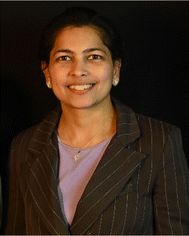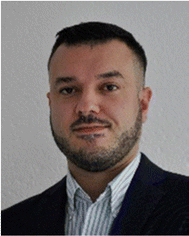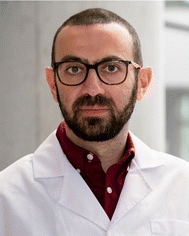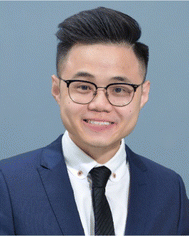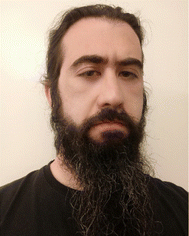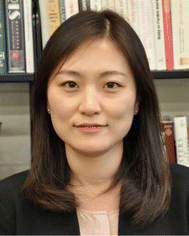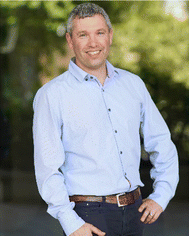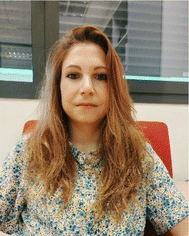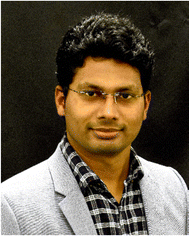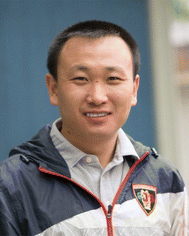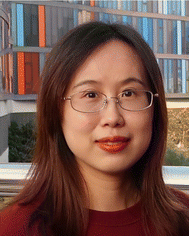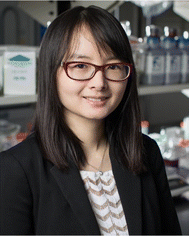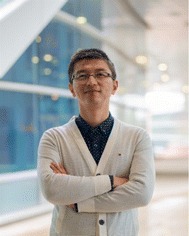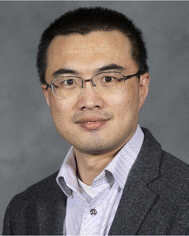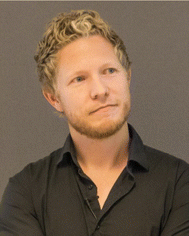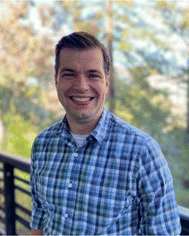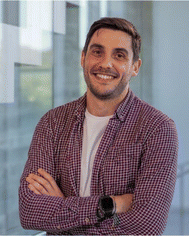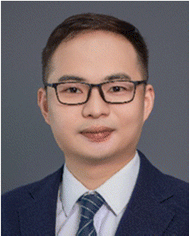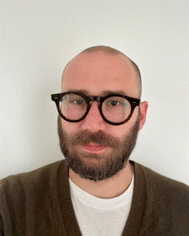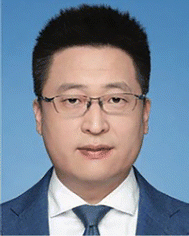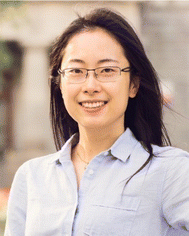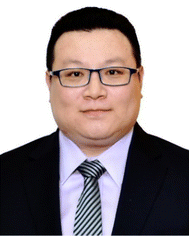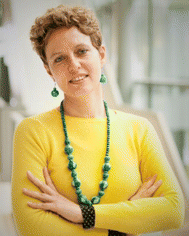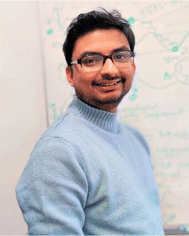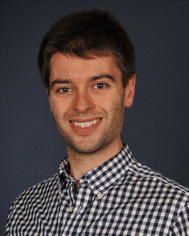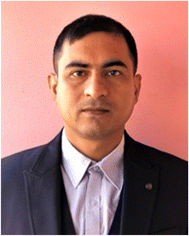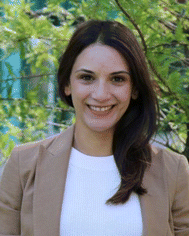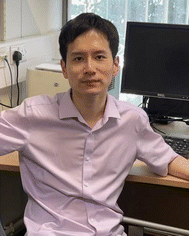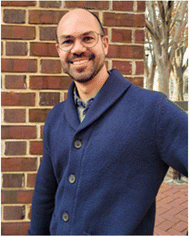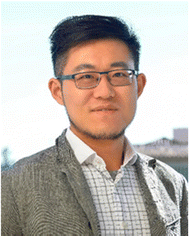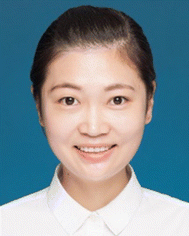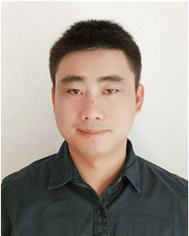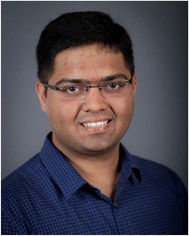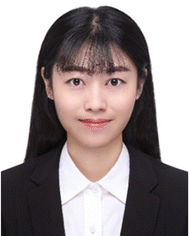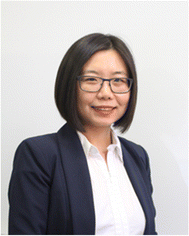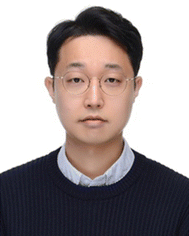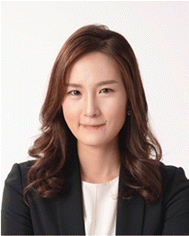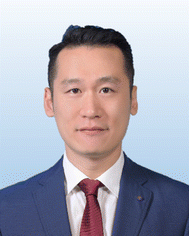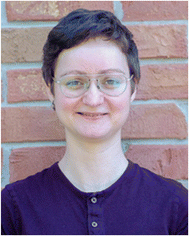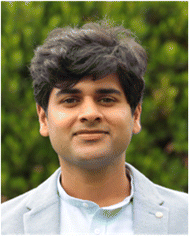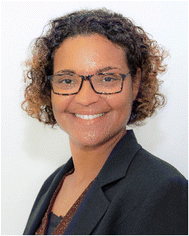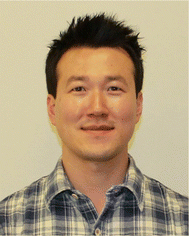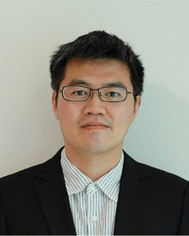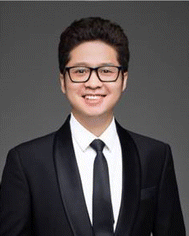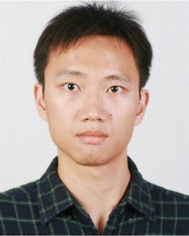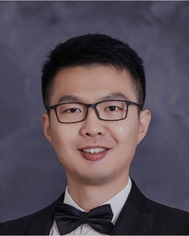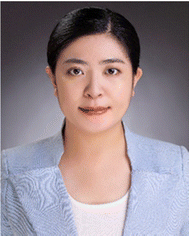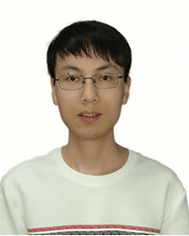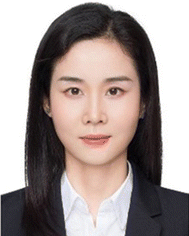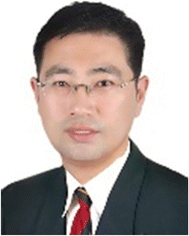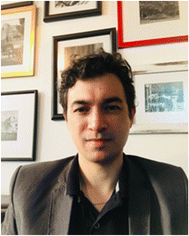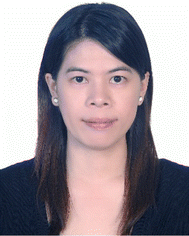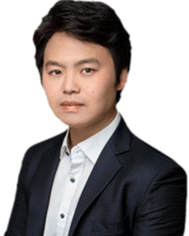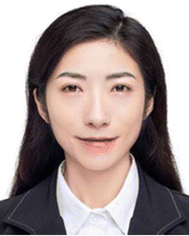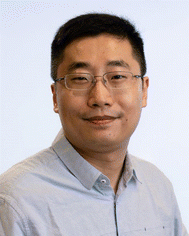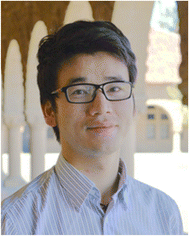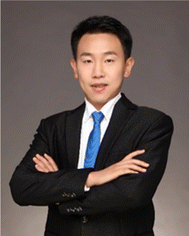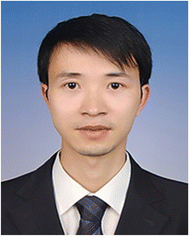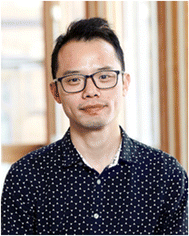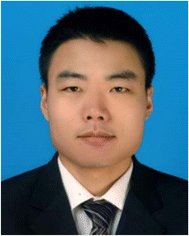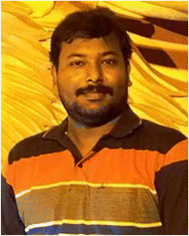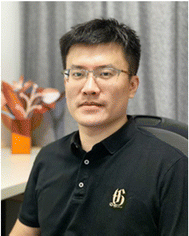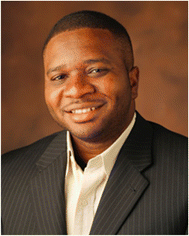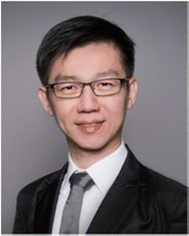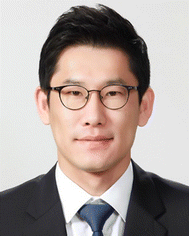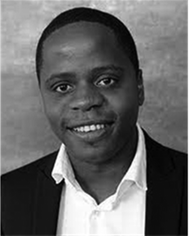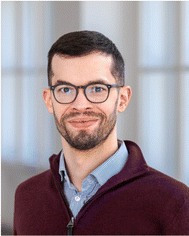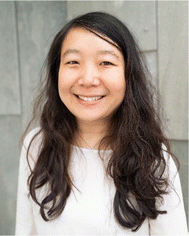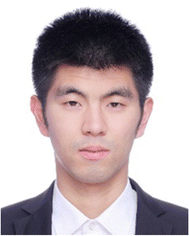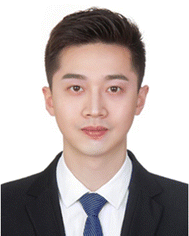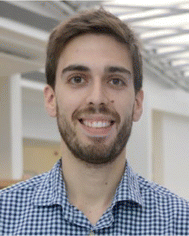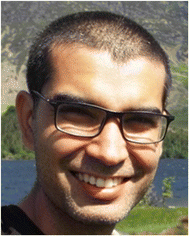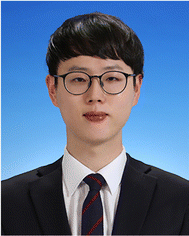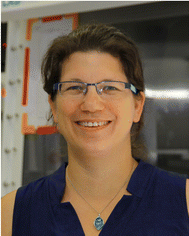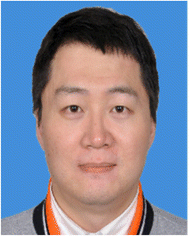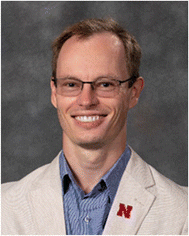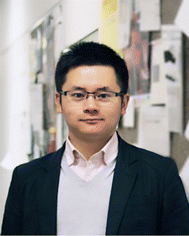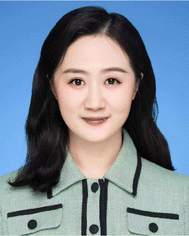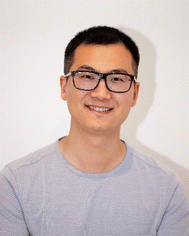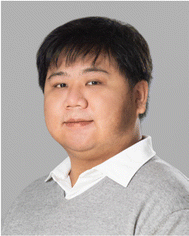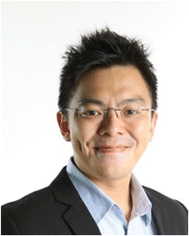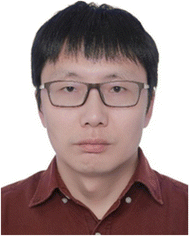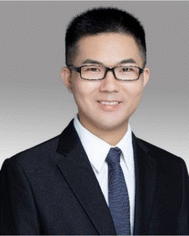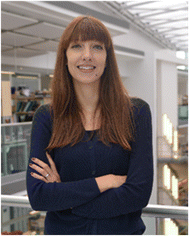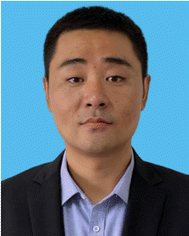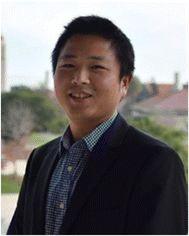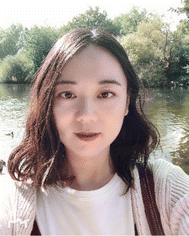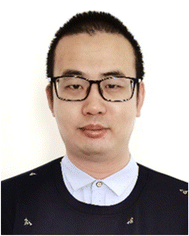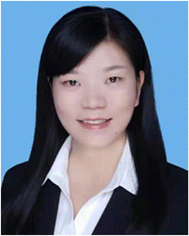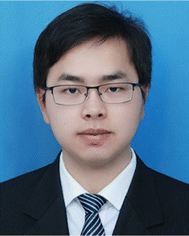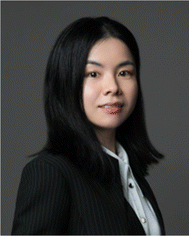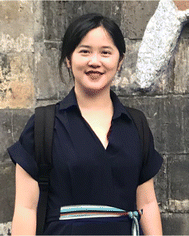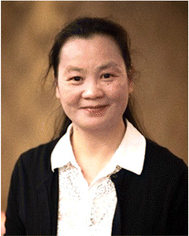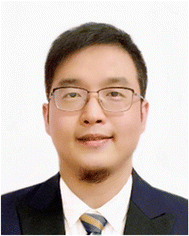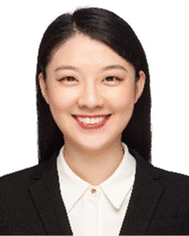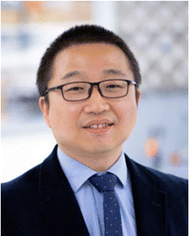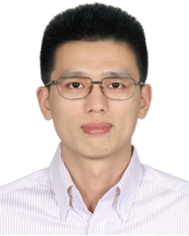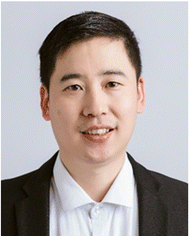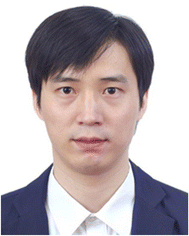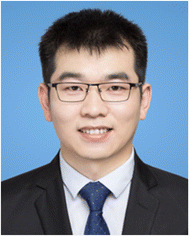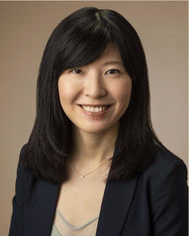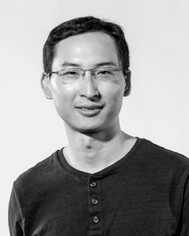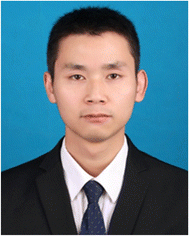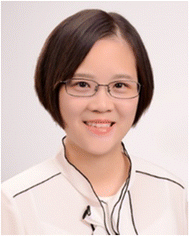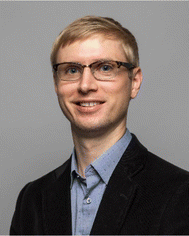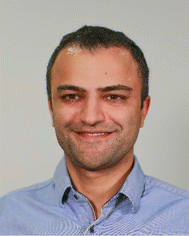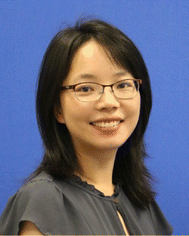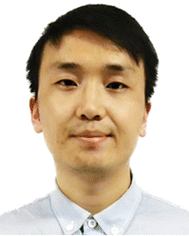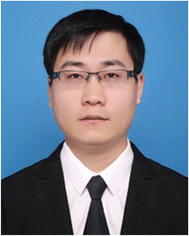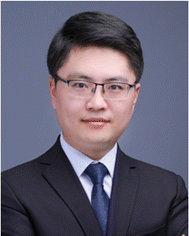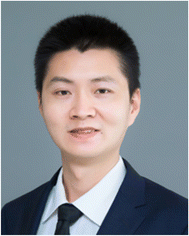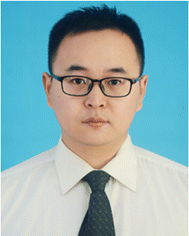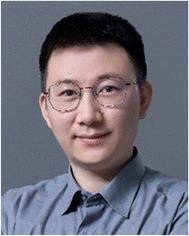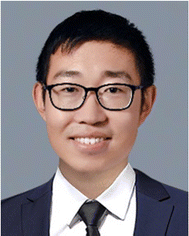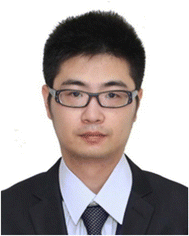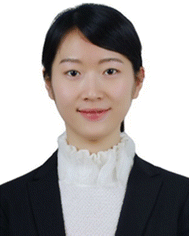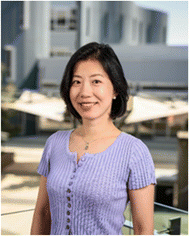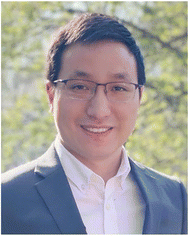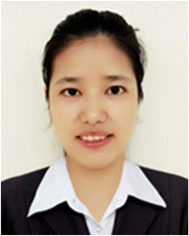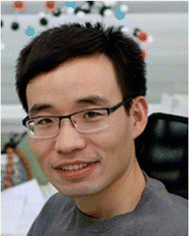DOI:
10.1039/D3NR90104A
(Profile)
Nanoscale, 2023,
15, 12426-12454
Nanoscale profiles: contributors to the Emerging Investigators 2023 issue
Abstract
This profile gathers together the biographies of our 2023 Emerging Investigators, exceptional nanoscientists in the early stages of their independent career. Congratulations to all of the researchers featured, find out more about them below.
Garima Agrawal is currently an assistant professor in the School of Chemical Sciences at the Indian Institute of Technology (IIT) Mandi, India. After completion of her PhD at RWTH Aachen University, Germany, in 2015, she worked as a postdoctoral researcher at the University of Ghent, Belgium, and later as a DST-INSPIRE Faculty at IIT Roorkee. She is a recipient of both the NASI-Young Scientist Platinum Jubilee Award-2022 and the DST Inspire Faculty Award-2016. In 2009, she was also selected for the international DAAD academic exchange program. Her research interests are in the fields of functional polymers, nanomaterials, and biomaterials.
Her contribution to the 2023 Nanoscale Emerging Investigators collection can be read at https://doi.org/10.1039/D3NR00248A.
Alessandro Aliprandi is currently an associate professor at the Department of Chemical Sciences (DISC, University of Padova, Italy). He received his PhD at the Institute of Supramolecular Science and Engineering (ISIS), University of Strasbourg, in 2015 under the supervision of Professor Luisa De Cola working on the self-assembly of luminescent Pt(
II) complexes. To expand his skills in the field of low-dimensional materials such as graphene and copper nanowires, he carried out his postdoctoral studies in the group of Professor Paolo Samorì. In 2018 he was appointed as a Ingénieur de Recherche (CNRS). In 2020, he was awarded with an ERC Starting Grant. His fields of interest range from electroluminescence to chemiluminescence, photocatalysis, CO
2 valorisation and electrochromism.
His contribution to the 2023 Nanoscale Emerging Investigators collection can be read at https://doi.org/10.1039/D2NR06687D.
Chrysafis Andreou, PhD,
A nano-enthusiast, as you can see.
With a lab coat donned and daring claims,
He plays in nanotech's marvellous games.
An assistant professor, he teaches with excitement,
In the Electrical and Computer Engineering department.
At the University of Cyprus, he advises with pride,
While rocking the lab with his steady stride.
Molecular mysteries, he's poised to unravel,
In spectral realms, his expertise does travel.
Microfluidic wonders he's adept at designing,
In bioanalysis, his skills are just shining.
A modest scientist, with a whimsical twist,
Chrysafis seeks knowledge that can't be missed.
In the molecular domain of imaging and detection,
He dances to the rhythm of scientific perfection.
His contribution to the 2023 Nanoscale Emerging Investigators collection can be read at https://doi.org/10.1039/D3NR01661G.
Edison Huixiang Ang is currently an assistant professor at the National Institute of Education/Nanyang Technological University. He is also an Early Career Board Member of
Chemical Engineering Journal, Editorial Board Member of
Scientific Reports, and Associate Editor of
Frontiers in Chemistry. His current research interests combine nanotechnology, 2D nanomaterials and additive manufacturing approaches to develop functional nanostructures for advanced energy storage, membrane technology, catalysis, and sensing applications.
His contribution to the 2023 Nanoscale Emerging Investigators collection can be read at https://doi.org/10.1039/D2NR05328D.
Albert C. Aragonès completed his PhD in molecular electronics (2017) at the University of Barcelona. After his PhD, he moved to Dr Díez-Pérez’s Group at King's College London (UK). After receiving a Marie Skłodowska-Curie Postdoctoral Fellowship (2019) he moved to Professor Bonn's Molecular Spectroscopy Group at the Max Planck Institute (MPIP, Germany) under the supervision of Professor Domke. Aragonès main research focuses on molecular-scale charge transport phenomena under force fields combined with plasmonic (nano-optical) trapping. Currently he is a “la Caixa” Foundation Junior Group Leader at the University of Barcelona and Leader of a Max Planck Partner Group at the same university.
His contribution to the 2023 Nanoscale Emerging Investigators collection can be read at https://doi.org/10.1039/D2NR05448E.
Jinhye Bae is an assistant professor in the Department of NanoEngineering at the University of California San Diego. She received her PhD in polymer science and engineering at the University of Massachusetts Amherst in 2015, she then worked in the School of Engineering and Applied Sciences at Harvard University as a Postdoctoral Fellow. Her research focuses on understanding the physical and chemical properties of polymeric materials to program their shape reconfiguration and responsiveness. Her research interests also include the integration of material characteristics into new structural design and fabrication approaches, for applications in biomedical devices, soft robotics, actuators, and sensors.
Her contribution to the 2023 Nanoscale Emerging Investigators collection can be read at https://doi.org/10.1039/D2NR05408F.
Yehonadav Bekenstein is an assistant professor of materials science and engineering at the Solid State Institute at Technion, Israel's institute of technology. Yehonadav completed his physics and chemistry degrees at the Hebrew University of Jerusalem, receiving his PhD in 2015. Following this, he spent three years at the University of California, Berkeley as a Rothschild Fellow, working with Professor Alivisatos. Since 2018, he has headed an independent research group, holding an ERC Starting Grant (Heteroplates). His major research interest is discovering new materials and designing their properties for the benefit of mankind. His current focus is excitonic collective interactions in perovskite nanocrystals.
His contribution to the 2023 Nanoscale Emerging Investigators collection can be read at https://doi.org/10.1039/D2NR03275A.
Lucas Caire da Silva studied chemistry at the University of Campinas in Brazil and received his PhD in polymer chemistry in 2015 under the supervision of Professor Kenneth Wagener at the University of Florida. In 2016, he joined Professor Katharina Landfester's group at the Max Planck Institute for Polymer Research (MPIP) as a postdoctoral researcher, to work on the development of synthetic cells from synthetic building blocks. He is currently a group leader in the Department of Physical Chemistry of Polymers at MPIP. The Silva Lab develops biomimetic supramolecular systems for applications in synthetic biology, catalysis, and soft matter.
His contribution to the 2023 Nanoscale Emerging Investigators collection can be read at https://doi.org/10.1039/D2NR05101J.
Justin R. Caram is an assistant professor in the department of chemistry and biochemistry at the University of California, Los Angeles. Following a PhD at the University of Chicago, and postdoctoral research at the MIT Center for Excitonics, he joined UCLA in 2017. His research program focuses on developing new materials and methods for studying near and shortwave infrared photophysics. He is particularly fascinated by extremes in excitonic behaviour, including ultranarrow linewidths, superradiance and unusually redshifted chromophores.
His contribution to the 2023 Nanoscale Emerging Investigators collection can be read at https://doi.org/10.1039/D2NR05747F.
Carolina Carrillo-Carrión is currently a tenured scientist at the Institute for Chemical Research (IIQ-CSIC, Seville). She received her PhD from the University of Córdoba (2011). Then she worked at different universities and research centres: Philipps-Universität Marburg (Germany, with a von Humboldt professorship), CICbiomaGUNE (San Sebastián, as a JdC-I researcher), CiQUS-University Santiago de Compostela (as a Marie Curie Fellow), University of Córdoba (PI of a national project for young researchers), and University of Seville (as a Ramón y Cajal researcher). Nowadays her research is focused on developing multifunctional metal–organic frameworks with promising applications in the biomedical and (bio)catalytic fields.
Her contribution to the 2023 Nanoscale Emerging Investigators collection can be read at https://doi.org/10.1039/D2NR04246K.
Indranath Chakraborty is an assistant professor at the School of Nano Science and Technology, Indian Institute of Technology Kharagpur, India. He obtained his PhD in chemistry from the Indian Institute of Technology Madras, India. He was then a postdoctoral research associate at the University of Illinois at Urbana–Champaign, USA. Later, he was an Alexander von Humboldt postdoctoral research fellow at Philipps University of Marburg, Germany. He was also a research associate at the Center for Hybrid Nanostructures, University of Hamburg, Germany. His research area primarily focuses on the atomic-level engineering of metal nanoclusters and investigating their emerging properties.
His contribution to the 2023 Nanoscale Emerging Investigators collection can be read at https://doi.org/10.1039/D2NR06619J.
Shuai Chang received his BS degree from Fudan University in 2007 and his PhD from Arizona State University in 2012. After that, he worked as a postdoctoral fellow at Stanford University. In 2016, he joined Wuhan University of Science and Technology as a professor. He has long been engaged in the interdisciplinary research of nanobiotechnology where his interests focus on molecular electronics, supramolecular chemistry, quantum sequencing and single-molecule detection.
His contribution to the 2023 Nanoscale Emerging Investigators collection can be read at https://doi.org/10.1039/D2NR06074D.
Mengyu Chen received her Bachelor's degree in optoelectronic engineering from Tianjin University. She pursued her MPhil degree and PhD in electronic engineering at the Chinese University of Hong Kong, where she accumulated experience in the investigation of colloidal quantum dot based infrared photodetectors. Then she worked as a postdoc researcher at the Chinese University of Hong Kong, and the University of Bayreuth, Germany. In 2020, she joined the School of Electronic Science and Engineering at Xiamen University as an assistant professor. Her research interests focus on the fabrication and characterization of innovative photodetectors and other optoelectronic devices.
Her contribution to the 2023 Nanoscale Emerging Investigators collection can be read at https://doi.org/10.1039/D2NR07309A.
Qian Chen has been an associate professor and Racheff Scholar in the Department of Materials Science and Engineering at the University of Illinois since 2021. She obtained her PhD from the same department with Professor Steve Granick in 2012, and did her postdoc with Professor Paul Alivisatos under the Miller Fellowship at UC Berkeley. Her group focuses on “nanoscale cinematography”, covering nanoparticle assembly, active matter, energy materials, and protein transformation. She has won recognition such as the Forbes 30 under 30 Science list, Sloan Fellow, Unilever Award in ACS, and Hanwha-Total Energies IUPAC Young Scientist Award.
Her contribution to the 2023 Nanoscale Emerging Investigators collection can be read at https://doi.org/10.1039/D2NR03712B.
Huanyu Cheng earned his PhD from Northwestern University in 2015 and a Bachelor's degree from Tsinghua University in 2010. He is a James L. Henderson, Jr. Memorial associate professor of engineering science and mechanics at Penn State University. Cheng has worked on standalone stretchable sensing systems for biomedicine with over 130 peer-reviewed publications, and his work has been recognized with numerous awards. He also serves as an associate editor for the
IEEE Internet of Things Journal,
Computers in Biology and Medicine and as a reviewer for over 230 international journals.
His contribution to the 2023 Nanoscale Emerging Investigators collection can be read at https://doi.org/10.1039/D2NR06068J.
Yingwen Cheng earned his BS degree in chemistry and BEng in chemical engineering from Shandong University in 2008 and PhD in chemistry from Duke University in 2013. He completed his postdoctoral training at Pacific Northwest National Laboratory and joined Northern Illinois University in 2018. His group works on the problems associated with the chemistry of materials under electrochemical potential and aims to develop advanced materials and processes for next-generation energy storage and conversion. He is a recipient of the 2021 Doctoral New Investigator Award from the Petroleum Research Fund of the American Chemical Society.
His contribution to the 2023 Nanoscale Emerging Investigators collection can be read at https://doi.org/10.1039/D2NR06120A.
Dennis Christensen is a senior researcher at the Technical University of Denmark (DTU). Dennis received his PhD from DTU in 2017 and was offered a tenure track position at the same university thereafter. He has worked internationally in several locations including the University of Basel and the Paul Scherrer Institute, Switzerland, and Bar-Ilan University, Israel. Christensen has received numerous innovation and scientific prizes, including five young investigator awards and five graduate student awards. His research focuses on discovering new phenomena in oxide heterostructures emerging from broken symmetry and external stimuli, as well as visualizing their emerging properties using scanning magnetometry.
His contribution to the 2023 Nanoscale Emerging Investigators collection can be read at https://doi.org/10.1039/D2NR07172J.
Daniel Congreve is an assistant professor of electrical engineering at Stanford University. He received his BS and MS from Iowa State in 2011 and his PhD from MIT in electrical engineering in 2015, where he engineered photonic energy conversion processes. After a postdoc in chemical engineering at MIT where he studied perovskite luminescence, he joined the Rowland Institute as a Rowland Fellow in 2016 before joining Stanford in 2020. Dan is a Moore Inventor Fellow, Sloan Research Fellow, and co-founder of Quadratic3D, a startup commercializing 3D printing technologies. His research interests focus on applying nanomaterials and nanotechnology to challenging problems.
His contribution to the 2023 Nanoscale Emerging Investigators collection can be read at https://doi.org/10.1039/D3NR00067B.
Noémie-Manuelle Dorval Courchesne is an assistant professor of chemical engineering at McGill University and a Canada Research Chair in biologically-derived materials. Previously, she obtained her PhD in chemical engineering from MIT and completed at postdoc at the Wyss Institute for Biologically Inspired Engineering at Harvard. Her diverse and multidisciplinary research group works at the interface of materials, biological and chemical engineering to tackle sustainability and health challenges. Dorval Courchesne has received several recent honours and awards, including the 2020 Christopher Pierre Award for Research Excellence (Early Career) at McGill, the title of “Emerging Leader in Chemical Engineering” from the Canadian Society for Chemical Engineering in 2020, a new Canada Research Chair in 2021, and a Johnson & Johnson WiSTEM2D award in 2022.
Her contribution to the 2023 Nanoscale Emerging Investigators collection can be read at https://doi.org/10.1039/D2NR05565A.
Alejandro Criado received his PhD in organic chemistry (2013) at the University of Santiago de Compostela (Spain). From 2013 to 2020, he conducted postdoctoral research at the University of Trieste and CICbiomaGUNE research center. In 2021, he started his independent research career as a distinguished researcher at part of the Interdisciplinary Center of Chemistry and Biology (CICA) at the Universidade da Coruña, co-leading the NanoSelf group. Currently, he is a Ramon y Cajal assistant professor in the Chemistry Department at the Universidade da Coruña. His research interests focus on new methods for modifying low-dimensional materials to tailor their properties, along with the development of graphene-based sensors.
His contribution to the 2023 Nanoscale Emerging Investigators collection can be read at https://doi.org/10.1039/D2NR05103F.
Yitao Dai received his BS in fine chemical engineering in 2011 and MS in applied chemistry in 2014, both from the Dalian University of Technology, and later his PhD in nanoscience in 2018 from Aarhus University in Denmark. From 2018 to 2021, he worked as a post-doctoral researcher (Alexander von Humboldt Fellow) at the Max-Planck-Institut für Kohlenforschung, Germany. He is currently a research professor at the University of Science and Technology of China (USTC). His research focuses on heterogeneous catalysis, including photocatalytic organic synthesis.
His contribution to the 2023 Nanoscale Emerging Investigators collection can be read at https://doi.org/10.1039/D3NR00124E.
Anindita Das obtained her PhD with Professor Rongchao Jin at Carnegie Mellon University, where her research focused on the synthesis and single-crystal growth of atomically precise gold clusters. Following her PhD, Das carried out postdoctoral research with Professor Chad Mirkin at Northwestern University, where her work centered on the development of spherical nucleic acids based on metal clusters. In 2020, she started her independent lab in the Chemistry Department at Southern Methodist University where her research focuses on metal clusters and their interactions with MOFs and COFs for applications in catalysis and biology.
Her contribution to the 2023 Nanoscale Emerging Investigators collection can be read at https://doi.org/10.1039/D2NR05497C.
Francesco Di Stasio graduated in materials science and engineering at the University of Genoa (Italy, 2008), and he obtained a PhD in physics at University College London (UK) in 2012. He then worked as a research scientist at Cambridge Display Technology (Sumitomo Chemical group, UK) until he undertook postdoctoral research at the Istituto Italiano di Tecnologia (IIT, Italy). In 2015 he moved to the Institute of Photonic Sciences (ICFO, Spain) thanks to a MSCA Individual Fellowship. Since 2020 he has been a principal investigator of the Photonic Nanomaterials group at IIT after being awarded an ERC Starting Grant (NANOLED).
His contribution to the 2023 Nanoscale Emerging Investigators collection can be read at https://doi.org/10.1039/D2NR04169C.
Kelong Fan received his PhD in cell biology from the Institute of Biophysics, Chinese Academy of Sciences, in 2014. After this he stayed there to further pursue 3 years of postdoc training and 2 years of associate professor work experience before attaining a full professor position in 2019. He is interested in exploring the novel functions and applications of nanozymes in biomedicine, with a top priority to design functional nanozymes by learning from nature, and to develop novel strategies for disease theranostics. He now serves as an associate editor of
Exploration and
Frontiers in Chemistry.
His contribution to the 2023 Nanoscale Emerging Investigators collection can be read at https://doi.org/10.1039/D2NR05920G.
Yuan Fang is a professor at the Institute of Functional Nano & Soft Materials (FUNSOM) at Soochow University. She obtained her MS degree (2013) from Concordia University (advisor: Professor Louis Cuccia) and then received her PhD (2017) from KU Leuven (advisor: Professor Steven De Feyter). This was followed by postdoctoral training at McGill University (advisor: Professor Dmitrii Perepichka). In 2019, she received the Alice Wilson Award from the Royal Society of Canada for her research achievements. Her current research interests focus on the development of novel surface-confined π-conjugated covalent organic frameworks (COFs) and their implementation in molecular and thin-film electronics.
Her contribution to the 2023 Nanoscale Emerging Investigators collection can be read at https://doi.org/10.1039/D2NR06400F.
Kayn A. Forbes received his PhD in quantum electrodynamics under the supervision of Professor David L. Andrews at the University of East Anglia (UEA), UK, in 2018. He was then awarded a Leverhulme Early Career Fellowship 2019–2022 and in September 2022 was appointed Lecturer in Theoretical Chemistry at UEA. He is a theoretician with expertise in nanophotonics and structured light using methods from both quantum and semiclassical optics, with a particular emphasis on molecular and chemical systems. His most recent interest has been in exploiting the chirality of complex light for applications in chiroptical spectroscopy and optical manipulation.
His contribution to the 2023 Nanoscale Emerging Investigators collection can be read at https://doi.org/10.1039/D2NR05426D.
Junfeng Gao obtained his PhD in physics at Dalian University of Technology in 2012. He then became a postdoc fellow at the Beijing Computational Science Research Center from 2012 to 2014 and research assistant at the Hong Kong Polytechnic University from 2014 to 2015. As a core-staff scientist, he worked at the Institute of High Performance Computing (IHPC), A*STAR, Singapore, from 2015 to 2018. He then became, and currently remains, a full professor at the School of Physics, Dalian University. His research is focused on the growth mechanism, reconstruction, nonlinear optics, and catalyzing properties of two-dimensional materials and nano clusters.
His contribution to the 2023 Nanoscale Emerging Investigators collection can be read at https://doi.org/10.1039/D2NR05443D.
Lauren M. Garten is an assistant professor in the School of Materials Science and Engineering at the Georgia Institute of Technology. Her research is on the development of multiferroic materials for energy and electronic applications. Her particular focus lies at the nexus between ferroelectricity, magnetism, and photovoltaics. Prior to coming to Georgia Tech, Garten was a scientist at the U.S. Naval Research Lab, and a post-doc at the National Renewable Energy Laboratory. She has won the ONR Young Investigator Award, AFOSR Young Investigator Award, the Intel Rising Star Award, the DOE-BES Postdoctoral Research Award, and the CalTech Young Investigator Lectureship.
Her contribution to the 2023 Nanoscale Emerging Investigators collection can be read at https://doi.org/10.1039/D3NR00645J.
Teresa Gatti is an associate professor at the Department of Applied Science and Technology (DISAT) of the Politecnico di Torino, Italy. Previously, she was a postdoctoral fellow at the University of Padova (Italy) and a junior research group leader at the Center for Materials Research of the Justus Liebig University in Giessen, Germany. She holds an MSc degree in chemistry from the University of Bologna and a PhD in materials engineering from the Politecnico di Milano. Her research focuses on the development of new nanomaterials for energy-related applications. Since 2022, she is PI in the ERC Starting Grant project “JANUS-BI”, aiming at developing highly asymmetric 2D material inks for the production of photovoltaic and photoelectrochemical/photocatalytic nano-architectures.
Her contribution to the 2023 Nanoscale Emerging Investigators collection can be read at https://doi.org/10.1039/D2NR04970H.
Sushant Ghimire was born in Nepal. He obtained his Bachelor's and Master's degrees in chemistry from Tribhuvan University (Nepal) in 2010 and 2015, respectively. In 2016, he was awarded a Japanese Government (Monbukagakusho: MEXT) Scholarship for doctoral research. He received his PhD in materials science from Hokkaido University (Japan) in 2020. Currently, he is an Alexander von Humboldt Postdoctoral Research Fellow at the University of Rostock (Germany). His research interests include the synthesis, optoelectronic properties, and charge-carrier dynamics of metal halide perovskites.
His contribution to the 2023 Nanoscale Emerging Investigators collection can be read at https://doi.org/10.1039/D2NR06048E.
Robert Godin has long been fascinated by photochemistry and first got introduced to it working with Professor Tito Scaiano during his BSc at the University of Ottawa. He continued to learn advanced optical techniques with Professor Gonzalo Cosa during his PhD at McGill University, and then with Professor James Durrant at Imperial College London during his postdoctoral stint. There he found his passion in the field of solar energy conversion. Since 2018 his independent group at the Okanagan campus of UBC in Kelowna, British Columbia, Canada, develops time-resolved spectroscopic tools to better understand carbon-based semiconductors for sustainable energy production.
His contribution to the 2023 Nanoscale Emerging Investigators collection can be read at https://doi.org/10.1039/D2NR04129D.
Nirmal Goswami is currently working as a scientist at the CSIR-Institute of Minerals and Materials Technology (CSIR-IMMT), India. Prior to commencing his current position, he was a postdoctoral research associate at the University of South Australia and a research fellow at the National University of Singapore. He also holds an Honorary Adjunct Research Fellow position with the University of Adelaide, Australia. His current research interests are the development of ultra-small, luminescent metal nanoclusters, and their assemblies exhibiting excellent molecular-like properties and applications.
His contribution to the 2023 Nanoscale Emerging Investigators collection can be read at https://doi.org/10.1039/D2NR05396A.
Marilena Hadjidemetriou obtained a BSc in Pharmacy at the University of Athens. In 2013, she completed the MSc in Drug Delivery at the UCL School of Pharmacy and she then joined the Nanomedicine Lab at The University of Manchester as a Marie Curie Early-Stage Fellow. After her PhD, Marilena was awarded a Medical Research Council postdoctoral fellowship and the CRUK Pioneer Award to work on the nanoparticle-enabled discovery of blood biomarkers. In 2018, Marilena was appointed as a Research Fellow and Group Leader in Nano-Omics and in 2020, she was appointed as Lecturer. Her group aims to develop multi-omics nanotechnology platforms to explore disease pathways and uncover molecular biomarkers.
Her contribution to the 2023 Nanoscale Emerging Investigators collection can be read at https://doi.org/10.1039/D2NR05982G.
Guanjie He is a lecturer in advanced propulsion at the Department of Chemical Engineering, University College London (UCL). Prior to this, He held faculty positions at the University of Lincoln and Queen Mary University of London. He obtained his PhD from the Department of Chemistry, UCL. He is rapidly expanding his research activities through a number of collaborations in diverse areas from the core focus of aqueous energy storage and conversion materials and devices, such as Zn-ion batteries, fuel cells and electrocatalysts, to advanced characterisation and simulation.
His contribution to the 2023 Nanoscale Emerging Investigators collection can be read at https://doi.org/10.1039/D2NR04140E.
Emil A. Hernández-Pagán obtained his BS in chemistry from the University of Puerto Rico, Mayagüez, working with Miguel Castro on the synthesis of silver nanowires. His PhD work on electrochemistry and nanomaterials was conducted under Tom Mallouk at Penn State University. He then joined Janet Macdonald at Vanderbilt University for postdoctoral studies on nanoparticles synthesis. After a brief stint at Amgen, he resumed his academic career working in the labs of Janet Macdonald at Vanderbilt University and Ray Schaak at Penn State University. Hernández-Pagán is currently an assistant professor at the University of Delaware where his group focuses on the mechanism of nanoparticles synthesis and their use in biomedical and (photo)electrocatalytic applications. Outside of the academic realm, Hernández-Pagán is an avid runner and triathlete.
His contribution to the 2023 Nanoscale Emerging Investigators collection can be read at https://doi.org/10.1039/D2NR05854E.
Guosong Hong received his PhD in chemistry from Stanford University and completed postdoctoral training at Harvard University. Dr Hong joined Stanford Materials Science and Engineering and Wu Tsai Neurosciences Institute as an assistant professor in September 2018. His research at Stanford aims to develop novel optical and electronic materials for minimally invasive brain interfacing. He is a recipient of the NIH Pathway to Independence Award, the MIT Technology Review ‘35 Innovators Under 35’ Award, the
Science & PINS Prize for Neuromodulation, the NSF CAREER Award, the Walter J. Gores Award for Excellence in Teaching, and the Rita Allen Foundation Scholars Award.
His contribution to the 2023 Nanoscale Emerging Investigators collection can be read at https://doi.org/10.1039/D2NR06129E.
Jundie Hu received her PhD at the College of Chemistry, Chemical Engineering and Materials Science from Soochow University in 2019 under the supervision of Professor Jianmei Lu. Subsequently, she joined Suzhou University of Science and Technology as an associate professor. Her current research interests mainly focus on engineering nanoporous materials including 2D materials, heterojunctions, conjugated organic polymeric materials, and their applications in photocatalysis, such as water splitting, carbon dioxide conversion, and environmental remediation.
Her contribution to the 2023 Nanoscale Emerging Investigators collection can be read at https://doi.org/10.1039/D2NR04727F.
Jianfeng Huang has been a professor of chemistry at Chongqing University since 2019. He received his PhD in chemical sciences from the King Abdullah University of Science and Technology in 2015. Then, he moved to École Polytechnique Fédérale de Lausanne as a postdoctoral researcher (2016–2019), before joining Chongqing University
via the National Overseas High-level Talent Recruitment Programs of China. He is now serving as the youth editor of
Chemical Synthesis. His current research interest focuses on the energy-concerned design of nanoscale materials, covering fields pertaining to colloidal nanochemistry, nanoplasmonics, photo/electro/thermocatalysis,
etc.
His contribution to the 2023 Nanoscale Emerging Investigators collection can be read at https://doi.org/10.1039/D2NR06142B.
Deep Jariwala is an assistant professor in the Department of Electrical and Systems Engineering at the University of Pennsylvania (Penn). Jariwala received his PhD in materials science and engineering at Northwestern University. After a postdoctoral fellowship at Caltech, Jariwala joined Penn to start his own research group. His research interests lie at the intersection of new materials, surface science and solid-state (opto) electronic devices. Jariwala's research has been recognized with several awards such as the IEEE Photonics Society and IEEE Nanotechnology Council Young Investigator Award, IUPAP Early Career Scientist Prize in Semiconductors, Sloan Fellowship, AVS Peter Mark Memorial Award and the Bell Labs Prize.
His contribution to the 2023 Nanoscale Emerging Investigators collection can be read at https://doi.org/10.1039/D3NR01987J.
Shuang Jiang received her PhD from the School of Chemical Engineering and Technology at Tianjin University in 2017. She joined Professor Kotov's group as a visiting student from November 2014 to November 2016. She worked as an assistant professor in the School of Chemical Engineering and Technology of Tianjin University from 2017. Her research focuses on the fabrication and property regulation of chiral inorganic nanomaterials, the second-order nonlinear optical properties and circularly polarized light emission of chiral perovskite nanomaterials and applications in optoelectronic devices.
Her contribution to the 2023 Nanoscale Emerging Investigators collection can be read at https://doi.org/10.1039/D2NR05022F.
Yan Jiao is an ARC Future Fellow at the University of Adelaide's School of Chemical Engineering. She leads the Energy Materials Computation Research Group. She completed her PhD at the University of Queensland in 2012 and later joined the University of Adelaide, where she progressed from research fellow to associate professor. Recognized with a Young Tall Poppy Science Award and one of
The Australian's 40 Rising Stars, her multidisciplinary research focuses on designing efficient energy materials for the storage and conversion of clean energy with a core strength in molecular modelling.
Her contribution to the 2023 Nanoscale Emerging Investigators collection can be read at https://doi.org/10.1039/D3NR00149K.
Jae Hong Kim is a senior research scientist at the Korea Institute of Science and Technology (KIST). He has a background in self-assembled soft nanomaterials, having completed his PhD at the Korea Advanced Institute of Science and Technology (KAIST) with Professor Chan Beum Park and postdoctoral research at Lawrence Berkeley National Laboratory with Dr Ronald N. Zuckermann. His group currently focuses on designing and synthesizing sequence-defined polymers to create biomimetic nanomaterials for healthcare and energy applications.
His contribution to the 2023 Nanoscale Emerging Investigators collection can be read at https://doi.org/10.1039/D2NR05326H.
Youn Soo Kim has been an assistant professor in the Department of Materials Science and Engineering at POSTECH since 2017. She received her BS (2009) and MS (2011) degrees in chemistry and nanoscience from Ewha Womans University in Korea. She received her PhD in chemistry and biotechnology from the University of Tokyo in 2015 and worked as a postdoctoral researcher at the University of Tokyo from 2015 to 2017. Her current research interests include the self-assembly of block copolymers and the synthesis of functional hydrogels to develop biomimetic soft materials, bioelectronics, and bioadhesives.
Her contribution to the 2023 Nanoscale Emerging Investigators collection can be read at https://doi.org/10.1039/D2NR05522H.
Yoonseob Kim is an assistant professor in the Department of Chemical and Biological Engineering, The Hong Kong University of Science and Technology. He received his Ph.D. from the Department of Chemical Engineering at the University of Michigan, Ann Arbor. His Ph.D. work has earned him the ProQuest Distinguished Dissertation Award 2017 and DSM Science & Technology Award, American Chemical Society 2018. He worked at the Chemistry Department, Massachusetts Institute of Technology, as a postdoctoral associate. Currently, his group synthesizes porous crystalline polymers and applies them to tackle energy and environmental problems.
His contribution to the 2023 Nanoscale Emerging Investigators collection can be read at https://doi.org/10.1039/D3NR01959D.
Anna Klinkova obtained her PhD in chemistry from the University of Toronto in 2015. She was then a Connaught postdoctoral fellow conducting research focused on carbon dioxide electroreduction. Since 2017, she has been an assistant professor of chemistry at the University of Waterloo, and her team's research has been focused on developing synthetic approaches to advanced nanomaterials for applications in sustainable energy and catalysis. Her independent research work has been recognized with several awards including the International Association of Colloid and Interface Scientists (IACIS) Emerging Investigator Award and Outstanding Early-Career Achievements Award by Nano Ontario.
Her contribution to the 2023 Nanoscale Emerging Investigators collection can be read at https://doi.org/10.1039/D2NR05950A.
Priyank Vijaya Kumar is a Scientia Senior Lecturer in chemical engineering at UNSW Sydney. He was awarded his PhD in materials science from Massachusetts Institute of Technology in 2015, following which he was a postdoctoral fellow at ETH Zurich until 2019. His research group is interested in understanding and designing nanomaterials using theory, computation and data-driven/machine-learning methods. This is often done by collaborating with experimentalists in relevant areas. Currently, the group's focus is on applications including catalytic systems, batteries, functional polymers, and water/gas separation membranes.
His contribution to the 2023 Nanoscale Emerging Investigators collection can be read at https://doi.org/10.1039/D2NR07147A.
Jannika Lauth has been an assistant professor at the institute of physical and theoretical chemistry in the chemistry department at the University of Tübingen since 2022, and was an independent research group leader at the institute of physical chemistry and electrochemistry at the University of Hannover since 2019. Before this, she obtained her PhD at the University of Hamburg with Horst Weller and joined Delft University of Technology for a postdoc with Laurens Siebbeles. Her group is combining colloidal synthesis methods (for 2D semiconductors), assessing the materials’ potential for innovative photonics using ultrafast transient absorption spectroscopy.
Her contribution to the 2023 Nanoscale Emerging Investigators collection can be read at https://doi.org/10.1039/D3NR00096F.
Sunghwan Lee is an assistant professor of engineering technology at Purdue University. He received his PhD in materials science and engineering from Brown University in 2013. He completed postdoc training at MIT and Harvard University from 2013 to 2015. His current research pertains to the design and discovery of functional thin film materials to fundamentally understand their process–structure–property relationships. He is particularly interested in the engineering of defect structures, interfacial properties, and nanostructured materials with new functionalities for energy storage and conversion, transparent and flexible electronics, and sensing applications.
His contribution to the 2023 Nanoscale Emerging Investigators collection can be read at https://doi.org/10.1039/D2NR05701H.
Fengwang Li is a lecturer and DECRA fellow in the School of Chemical and Biomolecular Engineering at the University of Sydney (USYD) and a flagship program lead at the ARC Centre of Excellence for Green Electrochemical Transformation of Carbon Dioxide. His research aims for a “greener”, carbon-neutral future relying on electrochemical energy. Li completed his Bachelor's and Master's degrees in chemistry at the Renmin University of China and obtained his PhD in chemistry from Monash University in 2017. Before joining the USYD, Li completed his postdoctoral research at the University of Toronto in 2018–2020.
His contribution to the 2023 Nanoscale Emerging Investigators collection can be read at https://doi.org/10.1039/D2NR06009D.
Lei Li is an associate professor at the Department of Materials Science and Engineering at the Southern University of Science and Technology. He received his Bachelor's degree from the University of Science and Technology of China and then obtained his PhD from the University of Nebraska-Lincoln with Professor Xiao Cheng Zeng. Li further pursued his postdoctoral research with Professor Graeme Henkelman at the University of Texas at Austin. His research focuses on machine-learning algorithm development for force field training, catalytic mechanistic study, dynamic simulations of nano-materials and catalytic reactions.
His contribution to the 2023 Nanoscale Emerging Investigators collection can be read at https://doi.org/10.1039/D2NR05471J.
Man-Bo Li was born in Hubei, China in 1986. He received his BS (2008) degree and PhD (2013) from the University of Science and Technology of China under the supervision of Professor Shi-Kai Tian. After three years of research work on metal nanoclusters with Professor Zhikun Wu at the Hefei Institutes of Physical Science, Chinese Academy of Sciences and a short stay at King Abdullah University of Science and Technology for research on heterogeneous catalysis, he joined Professor Jan-Erling Bäckvall's research group at Stockholm University, to develop palladium nanocluster-catalyzed oxidative reactions (2017–2019). In December 2019, he started his independent academic career as a professor at Anhui University, China. His current research interests focus on the construction of atomically precise nanoclusters and the discovery of their catalytic performance.
His contribution to the 2023 Nanoscale Emerging Investigators collection can be read at https://doi.org/10.1039/D2NR05225C.
Mengmeng Li is currently working as a full professor at the Institute of Microelectronics, Chinese Academy of Sciences, in Beijing. He obtained his PhD at the Max Planck Institute for Polymer Research in Germany. Afterward, he joined Eindhoven University of Technology and the Dutch Institute for Fundamental Energy Research as a senior researcher for his independent research, where he was awarded the Marie Skłodowska-Curie Individual Fellowship (European Commission) and a Talent Programme Veni grant (NWO), respectively. His current research interests include nanodevices based on semiconducting polymer monolayers, flexible electronics and new physics on the nanoscale.
His contribution to the 2023 Nanoscale Emerging Investigators collection can be read at https://doi.org/10.1039/D2NR05382A.
Qi Li received her PhD in engineering mechanics and energy from the University of Tsukuba in 2017, and later worked as a postdoctoral fellow at the National Institute of Advanced Industrial Science and Technology (AIST), Japan. Currently, she is an associate professor at Shaanxi Normal University, China. Her research interests focus on various functional materials for Li-ion batteries, Na-ion batteries, metal–air batteries, photo-assisted batteries and other energy conversion and storage devices.
Her contribution to the 2023 Nanoscale Emerging Investigators collection can be read at https://doi.org/10.1039/D2NR05442F.
Qingsong Li is an associate professor at the Shenzhen Institute of Advanced Technology, Chinese Academy of Sciences, China. He received his BS (2014) degree and PhD (2019) from Soochow University. During 2017–2018, he joined Professor Chen Xiaodong's group as a visiting student at Nanyang Technological University, Singapore. His research mainly focuses on silk-based functional materials and stretchable epidermal electronics.
His contribution to the 2023 Nanoscale Emerging Investigators collection can be read at https://doi.org/10.1039/D2NR05490F.
Si Li is an associate professor in the Department of Chemical and Material Engineering at Jiangnan University in China. She studied at Michigan University during 2016–2018 as a visiting student and received her PhD from Jiangnan University in 2018. After working as a postdoctoral research fellow at Jiangnan University, she started her independent academic career in 2021. Her research is focused on constructing chiral inorganic nanostructures, studying the relationships between chiral morphologies and bio-effects, and exploring specific applications in biological systems.
Her contribution to the 2023 Nanoscale Emerging Investigators collection can be read at https://doi.org/10.1039/D2NR05689E.
Zibiao Li is the Director of the Sustainable Polymers Division at the Institute of Sustainability for Chemicals, Energy and Environment (ISCE2), A*STAR, Singapore. Li holds a joint appointment at the Institute of Materials Research and Engineering (IMRE) and is an adjunct associate professor at the National University of Singapore (NUS). His research interests focus on material sustainability and MedTech polymers for healthcare applications. He has more than 200 publications in the interdisciplinary field of nanomaterials and polymers. Recently, he served as a guest editor for the themed collection “Flexible nanomaterials” in
Nanoscale Advances and edited two books entitled
Sustainable Nanotechnology and
Photothermal Nanomaterials in the Nanoscience & Nanotechnology Book Series published by the Royal Society of Chemistry. So far, he has had 43 publications with the Royal Society of Chemistry, including articles published in
Chem. Soc. Rev.,
J. Mater. Chem. A, B, C,
Nanoscale, and
Green Chem.
His contribution to the 2023 Nanoscale Emerging Investigators collection can be read at https://doi.org/10.1039/D2NR04171E.
Renato Sousa Lima received his PhD from the University of São Paulo (2013) in chemistry with a focus on electrochemical bio/sensors. He is currently a researcher at the Brazilian Center for Research in Energy and Materials and visiting professor at the State University of Campinas, University of São Paulo, and Federal University of ABC. He has been leading a group that aims to (i) develop solutions in electrochemical devices and nanointerfaces and (ii) understand the ensuing phenomena at the nanoscale, with the goal of creating platforms that are able to perform accurate field-deployable and daily analyses in the areas of the environment and clinical diagnosis.
His contribution to the 2023 Nanoscale Emerging Investigators collection can be read at https://doi.org/10.1039/D2NR07080D.
Meng-Fang Lin received her PhD from the School of Materials Science and Engineering, Nanyang Technological University (NTU), Singapore, in 2013. She joined the Department of Materials Engineering as an assistant professor in 2020. She previously did postdoctoral research at the National Institute for Materials Science (NIMS), Japan (2013–2014), and was a senior research fellow at NTU (2015–2018). Her research focuses on triboelectric energy harvesting, nanomaterials for energy and electronics applications, pressure sensors, and the human–machine interface.
Her contribution to the 2023 Nanoscale Emerging Investigators collection can be read at https://doi.org/10.1039/D2NR05990H.
Daishun Ling received his PhD (2013) from the School of Chemical and Biological Engineering, Seoul National University. Later, he worked as a professor at the College of Pharmaceutical Sciences, Zhejiang University. Now, he is a distinguished professor at the Frontiers Science Center for Transformative Molecules & School of Chemistry and Chemical Engineering, Shanghai Jiao Tong University. His primary research interest is focused on assembly/disassembly chemistry, stimuli-responsive biomaterials, molecular imaging, and dynamic nanoassembly-based drug delivery systems.
His contribution to the 2023 Nanoscale Emerging Investigators collection can be read at https://doi.org/10.1039/D2NR04979A.
Aijie Liu obtained her PhD in 2017 from the University of Twente, The Netherlands. During her PhD under the supervision of Professor Jeroen J. L. M. Cornelissen, she focused on functional nanomaterials using virus nanoparticles as building blocks. From 2018 to 2021, she was a postdoctoral researcher in Dr Haining Tian's group in the Physical Chemistry Department at Uppsala University, Sweden. In the Spring of 2022, she joined Xiamen University, School of Pharmaceutical Sciences. Her research interests focus on macromolecular self-assembled nanoreactors for applications in biomedicine and sustainability.
Her contribution to the 2023 Nanoscale Emerging Investigators collection can be read at https://doi.org/10.1039/D2NR06621A.
Dongfei Liu earned his PhD in pharmacy from the University of Helsinki in 2014. Following two years of training at Harvard University, he was appointed as a principal investigator at the University of Helsinki. After being awarded the Thousand Talents Plan for Young Professionals, he joined the China Pharmaceutical University in 2018 as a professor. The research in his group focuses on the continuous engineering of systems with ultrahigh mass fraction of therapeutics for biomedical applications. Currently, his group seeks to understand the molecular mechanisms of interfacial self-assembled materials to simultaneously enable efficient drug encapsulation and long term controlled drug release.
His contribution to the 2023 Nanoscale Emerging Investigators collection can be read at https://doi.org/10.1039/D2NR05744A.
Kang Liu is a professor in the School of Power and Mechanical Engineering at Wuhan University. He received his Bachelor's degree (2009) and PhD (2014) in thermal engineering from Wuhan University, China. Then, he worked at Wuhan National Laboratory for Optoelectronics (WNLO), Huazhong University of Science and Technology (HUST), as a research scientist. During 2017–2018, he was a visiting professor at Stanford University. His main research interest is advanced thermal and fluidics technologies for energy, information and bio applications.
His contribution to the 2023 Nanoscale Emerging Investigators collection can be read at https://doi.org/10.1039/D2NR06042F.
Siyuan Liu received his PhD in 2019 from Würzburg University in Würzburg, Germany. In the same year, he joined the China University of Petroleum as an independent researcher and is now an assistant professor of the materials science and engineering department. His lab majors in developing and understanding materials for carbon capture and utilization including electrochemical CO
2RR catalysts, CO
2 adsorption materials, and borylation reagents for CO
2 conversion. His research has been funded by the National Natural Science Foundation of China, Natural Science Foundation of Shandong and China University of Petroleum.
His contribution to the 2023 Nanoscale Emerging Investigators collection can be read at https://doi.org/10.1039/D2NR05399C.
Xijun Liu received his PhD from the College of Science, Beijing University of Chemical Technology, in 2014. Then he joined the School of Materials Science and Engineering at Tianjin University of Technology. Currently, he is a full professor at the School of Resource, Environments and Materials at Guangxi University. His current scientific interests focus on nanomaterials, heterogeneous catalysis, and materials design for catalysts and energy conversion/storage.
His contribution to the 2023 Nanoscale Emerging Investigators collection can be read at https://doi.org/10.1039/D2NR07291B.
Yawei Liu is an associate professor at the Institute of Process Engineering of Chinese Academy of Sciences. Prior to this he was a postdoctoral researcher at the University of Sydney, 2017–2021, and a visiting PhD student at the University of Cambridge, 2014–2016. He received his PhD in Chemical Engineering from Beijing University of Chemical Technology in 2017. His research is focused on developing and applying multiscale analytical and computational methods, mainly molecular simulations, to study soft matter, with a particular interest in how nanoscale interfacial structures influence and regulate the behavior of fluids and particles in a system. His current research topics include nanobubbles, nanofluidics and assembly of nanomaterials.
His contribution to the 2023 Nanoscale Emerging Investigators collection can be read at https://doi.org/10.1039/D2NR05230J.
Yuan Liu is an associate professor at the School of Chemical Engineering and Technology, Sun Yat-Sen University, China. He received his PhD from Linköping University in Sweden at the end of 2016. Afterwards, he completed postdoctoral research studies at Beijing University of Chemical Technology and the University of Nebraska-Lincoln. He moved to Sun Yat-Sen University in 2020. His research is mainly focused on porous ices, heterogeneous ice nucleation on solid surfaces, and clathrate hydrates using first-principles calculations and molecular dynamics simulations.
His contribution to the 2023 Nanoscale Emerging Investigators collection can be read at https://doi.org/10.1039/D2NR05759J.
Jingxiang Low obtained his Bachelor of Engineering (Hons.) from Multimedia University, Malaysia, and his Masters degree and PhD in materials science from Wuhan University of Technology, China. He is currently working at the University of Science and Technology of China as an associate professor (research). He has also been invited by Monash University Malaysia Campus to be a visiting fellow and by Turin Polytechnic University in Tashkent to be a PhD co-supervisor since 2021. His current research interests include the development of
in situ/operando methodologies toward liquid/solid interfacial study, the synthesis of metallic nanocrystals and semiconductor nanomaterials for solar energy conversion.
His contribution to the 2023 Nanoscale Emerging Investigators collection can be read at https://doi.org/10.1039/D2NR05341A.
Kunal Manna received his MSc degree in chemistry from the Indian Institute of Technology, Kharagpur, India in 2013. Subsequently, he completed his PhD on the ‘Fabrication of carbonaceous/magnetic nanomaterial filled polymer nanocomposites in electromagnetic interference shielding applications’, at the Department of Chemistry, Indian Institute of Technology Kharagpur, India, in 2020. Currently he is working as a SERB National Postdoctoral Fellow in the Department of Materials Engineering, Indian Institute of Science. His research interests include inorganic nanomaterials, materials chemistry, polymer nanocomposites, electromagnetic interference shielding, vitrimers and their multifaceted applications. He has published 11 research articles in his field.
His contribution to the 2023 Nanoscale Emerging Investigators collection can be read at https://doi.org/10.1039/D2NR05428K.
Qianhao Min received his BS (2007) degree and PhD (2012) in chemistry from Nanjing University. After working as a visiting scholar at Stanford University, he joined the faculty of Nanjing University as an associate professor in 2015 and was further promoted to full professor in 2022. His research interests include nanomaterial-facilitated mass spectrometry, biological analysis, and drug delivery.
His contribution to the 2023 Nanoscale Emerging Investigators collection can be read at https://doi.org/10.1039/D2NR06020E.
Justus C. Ndukaife received his PhD in electrical engineering from Purdue University, USA in 2017, and MSc degree from Purdue Northwest and a BSc degree with First Class Honors from the University of Lagos. Ndukaife's interdisciplinary research is focused on optical nanotweezers enabled by nanophotonics including plasmonics and resonant dielectric metasurfaces, for single extracellular vesicle analysis, as well as for the enhancement of on-chip quantum light sources. He has made major contributions in the field optical nanotweezers and his research works have been published in top peer-reviewed journals including
Nature Nanotechnology,
Science,
ACS Nano, and
Nano Letters. He is an inventor of seven US patents relating to optical nanotweezers. In recognition of his scientific contributions, Ndukaife received a global Rising Stars of Light award in 2020. His global iCANX talk on optical nanotweezeers research attracted more than 260
![[thin space (1/6-em)]](https://www.rsc.org/images/entities/char_2009.gif)
000 viewers world-wide. His other honors include an NSF CAREER award, Chancellor's Award for Excellence in Research, 2017 prize in physics by the Dimitris N. Chorafas Foundation, the Purdue College of Engineering Outstanding Research Award, NSBE Golden Torch Award, Best Paper Award at the ASME conference, and a Carnegie African Diaspora Fellowship Award.
His contribution to the 2023 Nanoscale Emerging Investigators collection can be read at https://doi.org/10.1039/D2NR07073A.
Lea Nienhaus received her BSc from the Universität Ulm, Germany in 2010. In 2015, she obtained her PhD from the University of Illinois at Urbana-Champaign working with Professor Gruebele on optical scanning tunnelling microscopy. Following her postdoctoral work with Professor Bawendi at MIT, she began her independent career at Florida State University in the Fall of 2018. Her current research focuses on utilizing bulk perovskite materials as triplet sensitizers in photon upconversion and understanding the complex photophysical processes occurring in these systems using a combination of optical spectroscopy and scanning probe microscopy.
Her contribution to the 2023 Nanoscale Emerging Investigators collection can be read at https://doi.org/10.1039/D2NR05309H.
Wee-Jun Ong received his BEng and PhD in chemical engineering from Monash University. He is an associate professor and assistant dean in the School of Energy and Chemical Engineering at Xiamen University Malaysia. Since 2021, he has been a director of the Center of Excellence for NaNo Energy & Catalysis Technology (CONNECT) at Xiamen University Malaysia. Previously, he was a scientist at the Agency for Science, Technology and Research (A*STAR), Singapore, from 2016 to 2018. In 2019, he was a visiting scientist at Technische Universität Dresden and a visiting professor at Lawrence Berkeley National Laboratory. His research interests include nanomaterials for energy storage devices, photocatalytic, photoelectrocatalytic and electrochemical H
2O splitting, CO
2 reduction and N
2 fixation as well as microwave plasma methane cracking for graphene and H
2 production.
His contribution to the 2023 Nanoscale Emerging Investigators collection can be read at https://doi.org/10.1039/D2NR05718B.
Kaushik Parida is working as an assistant professor at the Indian Institute of Technology (IIT) Roorkee. He holds a PhD from Nanyang Technological University (NTU) Singapore, where he worked with Professor Lee Pooi See. His research focuses on soft skin-like stretchable and self-healing electronic devices for energy harvesting and sensing. He has been working in the domain of nanogenerators and self-powered systems with 40+ publications (3000+ citations), including several publications in
Nature Communications,
Advanced Materials,
Advanced Energy Materials,
Advanced Functional Materials, and
Nano Energy. His lab's motivation is to develop soft skin-like electronic devices for human–machine interactions.
His contribution to the 2023 Nanoscale Emerging Investigators collection can be read at https://doi.org/10.1039/D2NR05969J.
Jungwon Park received his BS degree from the Department of Chemistry, POSTECH, South Korea, in 2003, and his PhD from the Department of Chemistry, University of California, Berkeley, in 2012. After a post-doc at the School of Engineering and Applied Sciences, Harvard University, he started a faculty position at the School of Chemical and Biological Engineering, Seoul National University, in 2016, and he currently serves as an associate professor jointly affiliated with the Center for Nanoparticle Research, Institute for Basic Science (IBS). His research area includes the
in situ study of nanomaterials, liquid-phase TEM, phase transitions, interface chemistry, and low-dimensional materials.
His contribution to the 2023 Nanoscale Emerging Investigators collection can be read at https://doi.org/10.1039/D2NR05294F.
Tod A. Pascal is an assistant professor of nano engineering and chemical engineering, affiliate faculty member of the Materials Science and Engineering Program and the Sustainable Power and Energy Center, and a lead investigator, for the UC San Diego MRSEC. Pascal's research group advances theoretical and computational methods to elucidate the structure and dynamics of electro-chemical systems, disorder in condensed phase systems and spectroscopy at molecular interfaces.
His contribution to the 2023 Nanoscale Emerging Investigators collection can be read at https://doi.org/10.1039/D2NR05732H.
Laerte L. Patera is an assistant professor at the University of Innsbruck (Austria). He received his PhD in nanotechnology from the University of Trieste (Italy) in 2016 and worked as a postdoctoral researcher at the University of Regensburg (Germany) from 2016 to 2019. In 2020, he started his independent career at the Technical University of Munich (Germany). He was awarded the Gustav Hertz Prize of the German Physical Society (2019) and an ERC Starting Grant (2022). His research is focused on the synthesis and imaging of two-dimensional covalent organic frameworks for energy conversion.
His contribution to the 2023 Nanoscale Emerging Investigators collection can be read at https://doi.org/10.1039/D2NR04949J.
Yuan Ping received her BSc degree from the University of Science and Technology of China in 2007, PhD from UC Davis in 2013, and materials postdoctoral fellowship at Caltech in 2016. Since then, she had been an assistant professor in chemistry and affiliated professor in physics at UC Santa Cruz and promoted to be an associate professor in 2022. Her research group focuses on developing and employing first-principles many-body theory and open quantum dynamics for materials applications. Ping is a recipient of the Alfred Sloan Research Fellowship and NSF CAREER Award in 2022 and the Air Force YIP award and ACS COMP OpenEye Award in 2021.
Her contribution to the 2023 Nanoscale Emerging Investigators collection can be read at https://doi.org/10.1039/D2NR04807H.
Jiafu Qu obtained his PhD at the College of Chemistry, Chemical Engineering and Materials Science from Soochow University in 2020, under the supervision of Professor Jianmei Lu. During his PhD studies, he spent one year at the National University of Singapore (NUS) in the group of Professor Ning Yan. Since 2020, he has been working as an associate professor at Suzhou University of Science and Technology. His research interests are centered on the synthesis and application of micro–nano materials, including photocatalytic/photothermal catalytic CO
2 hydrogenation, VOCs degradation, water purification, and biomass conversion.
His contribution to the 2023 Nanoscale Emerging Investigators collection can be read at https://doi.org/10.1039/D2NR06092B.
Kai Ren received his PhD in mechanical engineering from Southeast University in 2020. From 2019 to 2020, he was also a research assistant fellow in Professor Zhang's group at the Institute of High Performance Computing, A*STAR, Singapore. He currently works at Nanjing Forestry University and is also a post-doctoral candidate at Nanjing University of Aeronautics and Astronautics. His research is focused on the design of advanced functional materials such as photocatalytic, photovoltaic, and optical devices.
His contribution to the 2023 Nanoscale Emerging Investigators collection can be read at https://doi.org/10.1039/D3NR00429E.
Artur Filipe Rodrigues is a Marie Skłodowska-Curie Widening Research Fellow at CIBB, in the group of Professor Lino Ferreira. He obtained his PhD in nanoscience from the University of Manchester in 2019, under the supervision of Dr Cyrill Bussy and Professor Kostas Kostarelos. His research interests consist of the synthesis and biological evaluation of nanomaterials using
in vitro and
in vivo models, focusing on the development of nanoformulations for biointerfaces and advanced drug delivery systems.
His contribution to the 2023 Nanoscale Emerging Investigators collection can be read at https://doi.org/10.1039/D2NR05256C.
Souvik Roy is a senior lecturer in the School of Chemistry at the University of Lincoln. He completed his PhD in chemistry at Arizona State University, followed by postdoctoral work at CEA Grenoble, Uppsala University, and finally, at the University of Cambridge, where he was awarded a Marie-Curie Individual Fellowship. Since 2020, he started his independent research career at the University of Lincoln, where his group works at the interface of molecular and materials chemistry, focusing on developing new concepts and technologies for the production of fuels and chemicals using surplus renewable electricity and solar energy.
His contribution to the 2023 Nanoscale Emerging Investigators collection can be read at https://doi.org/10.1039/D2NR06026D.
Young Jin Sa received his PhD in chemistry from the Ulsan National Institute of Science and Technology (UNIST) in 2018. He participated in energy-related research on the development of active electrocatalytic nanomaterials for hydrogen fuel cells and electrolyzers. He then joined the clean energy research center at the Korea Institute of Science and Technology (KIST) as a postdoctoral fellow and conducted research on CO
2 electroreduction. His current research interest is designing nanomaterials and understanding the nature of active sites for selective electrocatalytic processes such as electrochemical synthesis of H
2O
2via O
2 reduction.
His contribution to the 2023 Nanoscale Emerging Investigators collection can be read at https://doi.org/10.1039/D2NR04652K.
Tamar Segal-Peretz is an associate professor at the Wolfson Department of Chemical Engineering, Technion-Israel Institute of Technology. She received her PhD from the Technion, followed by a Director's Postdoctoral Fellowship at Argonne National Laboratory and the Pritzker School for Molecular Engineering at the University of Chicago. Segal-Peretz's group, the Functional Nanostructure and Advanced Imaging (FNAI) lab, focuses on understanding and developing new functional nanostructures for nanofabrication processes, water technologies, and energy devices using polymer self-assembly and inorganic materials growth within polymers. The FNAI group utilizes and develops various 2D and 3D electron microscopy characterization techniques to probe nanostructures.
Her contribution to the 2023 Nanoscale Emerging Investigators collection can be read at https://doi.org/10.1039/D2NR05477A.
Guangcun Shan received his PhD in materials science and physics in 2013 from City University of Hong Kong. Afterwards, he worked as a postdoctoral scientist at the Max-Planck Institute in Germany and also at the University of Hong Kong. In 2016, he was promoted to full professor at Beihang University. In 2018, he received a Hong Kong K.C. Wong Education Foundation sponsorship, and recently he was awarded 3rd place prize as a supervisor for breaking the wall of radionuclide adsorption in the FALLING WALLS Lab, Beijing. His research interests are focused on 2D materials for flexible electronics and environmental remediation.
His contribution to the 2023 Nanoscale Emerging Investigators collection can be read at https://doi.org/10.1039/D2NR05809J.
Kelsey A. Stoerzinger is an assistant professor in the School of Chemical, Biological and Environmental Engineering at Oregon State University. She holds a joint appointment at Pacific Northwest National Laboratory, where she was a Linus Pauling Distinguished Postdoctoral Fellow. Stoerzinger completed her doctoral studies in materials science and engineering at the Massachusetts Institute of Technology, received an MPhil in physics from the University of Cambridge as a Churchill Scholar, and a BS from Northwestern University. Her research group focuses on designing and understanding materials that are selective and efficient in the conversion and storage of renewable energy.
Her contribution to the 2023 Nanoscale Emerging Investigators collection can be read at https://doi.org/10.1039/D2NR05373J.
Robert Streubel leverages local inversion symmetry breaking in solid-state materials to tailor magnetic and magneto-transport properties in nanostructures, amorphous materials, and molecular magnets. Robert graduated in 2011 from the TU Dresden, Germany with a physics diploma (MS) and received his doctoral degree (Dr. rer. nat.) in physics in 2015 from TU Chemnitz, Germany for his work carried out at the Leibniz Institute for Solid State and Materials Research Dresden, Germany. Before joining the University of Nebraska-Lincoln in 2020 as an assistant professor in the Department of Physics and Astronomy, he worked as a postdoctoral researcher at Berkeley Lab's Materials Sciences Division.
His contribution to the 2023 Nanoscale Emerging Investigators collection can be read at https://doi.org/10.1039/D2NR06834F.
Haiding Sun received his PhD in electrical engineering from Boston University. He is currently a professor at the University of Science and Technology of China. He has published more than 100 papers in peer-reviewed SCI-indexed journals including
Nature Electronics,
Advanced Functional Materials and
Nano Letters. He has written 4 book chapters and holds 20+ patents. His research interests include the investigation of the MBE and MOCVD epitaxy, and fabrication and characterization of semiconductor materials for both optoelectronics and electronic devices.
His contribution to the 2023 Nanoscale Emerging Investigators collection can be read at https://doi.org/10.1039/D2NR04552D.
Xiaolian Sun obtained her BS degree in chemistry from Nanjing University and PhD from Brown University, followed by postdoc training in the National Institutes of Health. Currently, she is a full professor at the China Pharmaceutical University. Her research interests are focused on the biomedical application of nanomaterials.
Her contribution to the 2023 Nanoscale Emerging Investigators collection can be read at https://doi.org/10.1039/D2NR06224K.
Jianbo Tang is currently a lecturer and a Discovery Early Career Researcher Award Fellow at the University of New South Wales (UNSW). He received his PhD in 2016 from the Technical Institute of Physics and Chemistry of the University of Chinese Academy of Sciences. Before he joined the UNSW in 2018, he was a postdoctoral researcher at Tsinghua University. Tang's research interests encompass a broad spectrum of fundamental and applied sciences of low-melting-point metals and alloys known as liquid metals. His current research focuses on solute–solvent interactions, phase transition dynamics, and surface chemistry of liquid metals.
His contribution to the 2023 Nanoscale Emerging Investigators collection can be read at https://doi.org/10.1039/D2NR06384K.
Mingchu Tang graduated with a BEng degree from the University of Sussex in 2011 and an MSc degree in nanotechnology from the University College London in 2012. In 2016, he obtained his PhD in semiconductor photonics, and soon after started his postdoc job in the same research group. He is now a lecturer in the Department of Electronic and Electrical Engineering at University College London. His interests include the heteroepitaxy growth of III–V compound semiconductor materials on III–V native and Group-IV substrates for high performance photonic devices.
His contribution to the 2023 Nanoscale Emerging Investigators collection can be read at https://doi.org/10.1039/D2NR04866C.
Chor Yong Tay is currently an associate professor in the School of Materials Science and Engineering at Nanyang Technological University (NTU), Singapore. He received his PhD in materials science and engineering from NTU. He was a Lee Kwan Yew Postdoctoral Fellow with the Department of Chemical and Biomolecular Engineering at the National University of Singapore (Class of 2012). His research interests integrate materials science, engineering, and biological principles toward the field of nano–bio interactions, where the focus is on developing a fundamental understanding of how engineered nanomaterial design, influences critical biological outcomes within the context of nanotoxicology and nanomedicine.
His contribution to the 2023 Nanoscale Emerging Investigators collection can be read at https://doi.org/10.1039/D2NR03893E.
Xiang-Dong Tian is an associate professor at the Fujian Institute of Research on the Structure of Matter, Chinese Academy of Sciences. He received his BS degree in life sciences and MS degree in biomedical engineering from Xiamen University. He obtained his PhD in physical chemistry at Xiamen University under the direction of Professor Zhong-Qun Tian. His research interests include establishing the correlation between assembled nanostructures and plasmonic properties, and the use of nanoparticle assemblies for SERS-based biomedical applications.
His contribution to the 2023 Nanoscale Emerging Investigators collection can be read at https://doi.org/10.1039/D2NR07165G.
Yingfeng Tu received his Master’s degree in pharmaceutical science from Peking University and his PhD from Radboud University, The Netherlands. After a short stint in research associate training, he was appointed as a full professor in the School of Pharmaceutical Sciences, Southern Medical University, heading the group of Nanomedicine. His current focus is on the design of intelligent self-propelled micro/nanomotors as next generation drug delivery systems. He has published more than 60 peer-reviewed papers including some in
Nature Chemistry and
Chemical Reviews.
His contribution to the 2023 Nanoscale Emerging Investigators collection can be read at https://doi.org/10.1039/D2NR05818A.
Sandra Vranic is a lecturer, and leader of the Nano-Cell-Biology team at the University of Manchester. Her team investigates the mechanisms of nanomaterial–cell interactions, using monocellular and human-organoid models, aiming to understand the safety profile of nanomaterials and discover new nanotherapeutic modalities. Vranic obtained her BSc and MRes degrees in molecular biology from the University of Belgrade, Serbia. She completed her MRes and PhD in toxicology at the University Paris 7 – Diderot in 2013. She obtained a JSPS Postdoctoral Fellowship at Nagoya University and joined the University of Manchester in 2015 as a Marie Curie Research Fellow.
Her contribution to the 2023 Nanoscale Emerging Investigators collection can be read at https://doi.org/10.1039/D2NR04971F.
Bin Wang is a professor at the National Center for Nanoscience and Technology (NCNST), an institute at the Chinese Academy of Sciences, Beijing, China. He received his PhD at NCNST in 2014 and then moved to Professor Rodney S. Ruoff's group at the Center for Multidimensional Carbon Materials in Korea and Professor Liming Dai's group at the University of New South Wales in Australia as a research fellow until 2019. His research interests include 2D materials synthesis and related mechanoelectrochemistry studies, such as the mechanical issues in chemical/biochemical energy, including batteries, catalysis, and microbial hybrid catalytic systems.
His contribution to the 2023 Nanoscale Emerging Investigators collection can be read at https://doi.org/10.1039/D3NR00742A.
Lei Wang completed his doctorate at the KTH Royal Institute of Technology in 2015, where he studied water oxidation based on molecular catalysts. After receiving his PhD, he conducted a short period of research on catalyst discovery for light-induced hydrogen evolution at Uppsala University. In 2016, he joined Stanford University as a Wallenberg-Stanford postdoc fellow and worked on electrochemical CO
2/CO reduction. He began his current position at the National University of Singapore in 2020, where he is part of the NUS Center for Hydrogen Innovations. His current research focuses on catalyst discovery and understanding reaction mechanisms of energy related electrochemical processes.
His contribution to the 2023 Nanoscale Emerging Investigators collection can be read at https://doi.org/10.1039/D2NR06352B.
Qian Wang is currently an associate professor at Nagoya University, Japan. She received her PhD in 2014 from the University of Tokyo, Japan, and then worked as a postdoctoral researcher for the Japan Technological Research Association of Artificial Photosynthetic Chemical Processes (ARPChem) project at the University of Tokyo. In 2018, she became a Marie Sklodowska-Curie Research Fellow at the University of Cambridge. She joined Nagoya University as an associate professor in May 2021 and established her research group, which is currently developing new materials, approaches, and technologies for solar energy storage, in the form of renewable fuels
via artificial photosynthesis.
Her contribution to the 2023 Nanoscale Emerging Investigators collection can be read at https://doi.org/10.1039/D3NR00260H.
Shuxin Wang received his PhD from Anhui University in 2016 under the supervision of Professor Manzhou Zhu. As a joint PhD student, he studied at Carnegie Mellon University under the supervision of Professor Rongchao Jin between 2014 and 2016. Then he worked as a research professor at Anhui University from 2016 to 2019. In 2020, he joined Qingdao University of Science and Technology as a full professor. His research concerns precisely structured alloy nanoclusters.
His contribution to the 2023 Nanoscale Emerging Investigators collection can be read at https://doi.org/10.1039/D2NR05401A.
Ting Wang is a professor at NJUPT, China. She received her PhD in metallurgical environmental engineering from Central South University in 2015 and her MA degree in analytic chemistry from Hunan Normal University in 2012. From 2015 to 2021, she was a postdoctoral fellow at the School of Materials Science and Engineering, Nanyang Technological University (Singapore). She joined NJUPT as a professor in June 2021. Her research interests focus on developing biosensors on soft interfaces for non/minimally-invasive health monitoring and artificial systems.
Her contribution to the 2023 Nanoscale Emerging Investigators collection can be read at https://doi.org/10.1039/D2NR05444B.
Xianwen Wang obtained his PhD under the guidance of Professor Liang Cheng and Professor Zhuang Liu at the Institute of Functional Nano & Soft Materials (FUNSOM) at Soochow University in 2021. Then he joined Anhui Medical University as a professor and doctoral supervisor. His current research interest is the development of multifunctional nanomaterials for biomedical applications.
His contribution to the 2023 Nanoscale Emerging Investigators collection can be read at https://doi.org/10.1039/D2NR04239H.
Yan Wang joined the Guangdong Technion-Israel Institute of Technology as an associate professor in 2021. She received her PhD majoring in chemical engineering from Monash University in 2018 and completed her postdoc training at the Department of Electrical and Electronic Engineering at the University of Tokyo. In the soft electronics field, Wang has published over 30 scientific articles in flagship journals like
Science,
Nat. Electron.,
Sci. Adv.,
PNAS,
ACS Nano and
Chem. Soc. Rev. Her research works have been featured in renowned media, such as CNN,
Science,
Nature Materials, Australia’s SBS evening news, and
Nikkan Kogyo Shimbun. At Guangdong Technion, her research group mainly focuses on materials development and the practical implementation of soft wearables in real-life situations towards ambulatory health care and the Internet of Things.
Her contribution to the 2023 Nanoscale Emerging Investigators collection can be read at https://doi.org/10.1039/D2NR06236D.
Yawen Wang is currently a professor in the School of Chemical and Molecular Engineering at Nanjing Tech University in China. She obtained her BSc (2010) degree and PhD (2015) from Nanyang Technological University in Singapore, and worked there as postdoctoral research fellow before joining Nanjing Tech University in 2017. Her research focuses mainly on the controlled synthesis of nanomaterials, especially the synthetic mechanism and catalytic application of low-dimensional metal nanostructures.
Her contribution to the 2023 Nanoscale Emerging Investigators collection can be read at https://doi.org/10.1039/D2NR06090F.
Yuling Wang is an Australian Research Council (ARC) Future Fellow in the School of Natural Sciences at Macquarie University. Wang completed her PhD at the Chinese Academy of Sciences in 2009. She was then awarded an Alexander von Humboldt (AvH) fellowship (2010) and a German Research Foundation (DFG) fellowship (2012). In 2014, she received the ARC Discovery Early Career Researcher Award (DECRA) fellowship. In 2017, Yuling was appointed as a senior lecturer at Macquarie and was promoted to professor in 2022. Her research focuses on platform technologies that utilize the rationally designed plasmonic nanomaterials and surface-enhanced Raman scattering (SERS) for biomarkers sensing, with the aim to enhance
in vitro diagnostics and personalized medicine.
Her contribution to the 2023 Nanoscale Emerging Investigators collection can be read at https://doi.org/10.1039/D2NR05287C.
Jing Wu received his Bachelor's degree in physics from Zhejiang University in 2010 and his PhD in physics from the National University of Singapore (NUS) in 2015. He is currently the group leader of the Nano Electronic and Thermal Transport (NETT) group at the Institute of Materials Research and Engineering (IMRE) and an adjunct faculty member in the Department of Materials Science and Engineering, NUS. His research interests focus on the exotic transport dynamics and scattering physics of 2D materials, such as charge transport, thermoelectric and optoelectronic transport, and exploring the technical aspects for high-performance electronics.
His contribution to the 2023 Nanoscale Emerging Investigators collection can be read at https://doi.org/10.1039/D2NR06263A.
Tong Wu received her PhD in biomaterials science from Donghua University in 2018 under the guidance of Professor Xiumei Mo. She worked in Professor Younan Xia's group at the Georgia Institute of Technology in 2016 as a jointly-supervised PhD candidate and then as a postdoctoral fellow until the end of 2019. She is now working as a professor at Qingdao University. Her research interests include the development of novel nanomaterials for biomedical, environmental and energy-related applications.
Her contribution to the 2023 Nanoscale Emerging Investigators collection can be read at https://doi.org/10.1039/D2NR06081G.
Wenzhuo Wu is the Ravi and Eleanor Talwar Rising Star Associate Professor in the School of Industrial Engineering at Purdue University. Wu received his PhD from Georgia Tech in materials science and engineering. His research focuses on manufacturable nanotechnologies for energy, electronics, and wearable devices. He is a recipient of many awards, such as the ORAU Ralph E. Powe Junior Faculty Enhancement Award, SME Outstanding Young Manufacturing Engineer Award, Advanced Materials Interfaces Hall of Fame, ARO Young Investigator Award, NSF Early CAREER Award, Advanced Materials Technologies Hall of Fame, and Sensors Young Investigator Award.
His contribution to the 2023 Nanoscale Emerging Investigators collection can be read at https://doi.org/10.1039/D2NR05447G.
Xiaoji Xie received his BS degree in 2009 from Nanjing University and his PhD in 2014 from the National University of Singapore. He did his postdoctoral research with Professor Xiaogang Liu at the National University of Singapore. He is now a professor at the School of Flexible Electronics (Future Technologies) and Institute of Advanced Materials (IAM), Nanjing Tech University (China). His current research involves the investigation of inorganic functional nanomaterials, such as rare earth-doped luminescent nanomaterials, for bioapplications, catalysis, and sensing.
His contribution to the 2023 Nanoscale Emerging Investigators collection can be read at https://doi.org/10.1039/D2NR06029A.
Xiuqiang Xie is now an associate professor at the College of Materials Science and Engineering, Hunan University. He received his PhD from the University of Technology Sydney in 2017 under the supervision of Professor Guoxiu Wang. He has been a visiting PhD student supervised by Professor Yury Gogotsi at Drexel University, where he started his research on MXenes. His current research interests include the optical properties and the assembly methods of MXenes for sustainable technologies, such as photocatalysis and hybrid alkali-ion capacitors.
His contribution to the 2023 Nanoscale Emerging Investigators collection can be read at https://doi.org/10.1039/D2NR05983E.
Tao Xu received his BS (2009) degree and PhD (2016) from Southeast University under the supervision of Professor Litao Sun. He was appointed as a faculty member after graduating from the School of Electronic Science and Engineering in 2016. His current research interests focus on nanoscale structural evolution of electronic materials under various stimuli, and the development of fabrication methodologies for nanoscale materials.
His contribution to the 2023 Nanoscale Emerging Investigators collection can be read at https://doi.org/10.1039/D2NR03276G.
Xin Yan received his PhD in electronic science and technology from the Beijing University of Posts and Telecommunications (BUPT) in 2014. He is currently an associate professor with the State Key Laboratory of Information Photonics and Optical Communications, BUPT. He has published more than 150 research papers (100+ journal papers), holds 8 patents, and has authored 2 books. His research interests include low-dimensional semiconductor materials and nano-optoelectronic devices. He served as an associate editor on
Micro & Nano Letters (2019–2022), and is currently serving as an associate editor on
Materials Express. He was awarded the Third Prize in Natural Science, China Institute of Electronics (CIE).
His contribution to the 2023 Nanoscale Emerging Investigators collection can be read at https://doi.org/10.1039/D2NR06421A.
Rong Yang is an assistant professor in chemical and biomolecular engineering at Cornell University. She received her BS from Tsinghua University in Beijing and PhD in chemical engineering from MIT. She was a postdoctoral fellow and subsequently an assistant professor at Harvard Medical School before joining Cornell in 2019. Her research focuses on the all-dry synthesis of functional polymer nanolayers and other nanomaterials, with controlled morphology and reactivity. Her work has been recognized by the NIH Pathway to Independence Award, the NSF CAREER Award, the ACS PMSE Young Investigator Award, and the Intel® Rising Star Faculty Award, among others.
Her contribution to the 2023 Nanoscale Emerging Investigators collection can be read at https://doi.org/10.1039/D2NR04306H.
Jun Yao is currently a joint assistant professor in the Department of Electrical and Computer Engineering and Institute for Applied Life Sciences at the University of Massachusetts, Amherst. His research focuses on developing nanoelectronic and nanobioelectronic devices and integrated systems. He received his BS in electrical engineering and MS in pysics from Fudan University (China), his PhD in applied physics from Rice University, and postdoctoral training in chemistry and chemical biology at Harvard University. He is a recipient of the NSF CAREER award, Sony faculty innovation award, outstanding junior faculty award from the college, NIH Trailblazer R21 award, and Sloan Fellowship.
His contribution to the 2023 Nanoscale Emerging Investigators collection can be read at https://doi.org/10.1039/D2NR06773K.
Wei Ye is an associate professor at the College of Material, Chemistry and Chemical Engineering, Hangzhou Normal University. He received his PhD from Shandong University in 2015. From 2015 to 2018, he worked as a postdoctoral fellow at the University of Science and Technology of China. His research interests focus on the synthesis of novel electrocatalysts for electrochemical energy conversion.
His contribution to the 2023 Nanoscale Emerging Investigators collection can be read at https://doi.org/10.1039/D2NR05001C.
Yi-Lun Ying studied chemistry and obtained a PhD in analytical chemistry from the East China University of Science and Technology (ECUST). After a doctoral exchange study at the University of Birmingham (2014), Ying carried out her postdoctoral research on nanoelectrochemistry at ECUST. In 2016, she started her independent work and was promoted to professor at Nanjing University in 2019. Ying's team focuses on advanced electro-optical nanopores and nanoelectrochemical instrumentation. She has been recognized by several awards and honors, including the L'Oreal-UNESCO International Rising Talents (2016), Royal Society of Chemistry Analyst Emerging Investigator Lectureship (2020), Young Chemists Awards of Chinese Chemical Society (2020) and ACS Rising Star in Measurement Science (2023).
Her contribution to the 2023 Nanoscale Emerging Investigators collection can be read at https://doi.org/10.1039/D2NR06361A.
Matthias J. Young is an assistant professor at the University of Missouri with a joint appointment in chemical engineering and chemistry. He is a former NSF-GRFP fellowship recipient and NRC postdoctoral fellow and was the 2020 recipient of the Paul H. Holloway Young Investigator Award from the American Vacuum Society Thin Film Division. His research is focused on nanoscale thin films and materials electrochemistry for energy and water applications. Young is a five-time recipient of the thinnest film award, even demonstrating that it is possible to have no film at all. Young has submitted his films to the Sundance and Cannes film festivals, to which they responded “
not that kind of film”. High praise! Young plays guitar and keyboard, is teaching his two young daughters to skateboard, and is an aspiring backyard chicken farmer.
His contribution to the 2023 Nanoscale Emerging Investigators collection can be read at https://doi.org/10.1039/D3NR00708A.
Ali Zavabeti is a lecturer in the School of Chemical and Biomedical Engineering at the University of Melbourne, Australia. His research involves exploring the physicochemical properties of atomically thin interfaces of pristine solid and liquid metal mixtures when interfaced with reactant analytes. This exploration paves the way for nanomaterials synthesis designed for sensing, optoelectronics, and energy applications. He has received multiple research and industrial awards and is interested in translating research to solving real-world challenges. He worked as a McKenzie Postdoctoral Research Fellow at the University of Melbourne after obtaining his PhD from RMIT University, Australia.
His contribution to the 2023 Nanoscale Emerging Investigators collection can be read at https://doi.org/10.1039/D2NR05926F.
Chenjie Zeng received her PhD in chemistry from Carnegie Mellon University in 2016 and was a NatureNet Science postdoctoral fellow at the University of Pennsylvania from 2017–2019. She joined the Department of Chemistry at the University of Florida as an assistant professor in 2019. Research in her group centers around precision nanochemistry and nanomaterials, with emphasis on developing synthetic methods for atomically precise nanomaterials, understanding the structure and property correlations of nanomaterials at the atomic level, as well as assembling the nanoparticle building blocks into thin films and bulk solids for better energy conversion and exotic physical properties.
Her contribution to the 2023 Nanoscale Emerging Investigators collection can be read at https://doi.org/10.1039/D2NR05808A.
Hongti Zhang is currently an assistant professor in the School of Physical Science and Technology at ShanghaiTech University. He obtained his PhD in mechanical engineering from the City University of Hong Kong in 2016 and worked there as a postdoctoral researcher before joining ShanghaiTech University in November 2018. His research interests focus on investigating the mechanical properties of functional nanomaterials and exploring their strain-induced property changes (elastic strain engineering)
via in situ electron microscopy techniques.
His contribution to the 2023 Nanoscale Emerging Investigators collection can be read at https://doi.org/10.1039/D2NR07311K.
Jinqiang Zhang received his PhD from the University of Technology Sydney in 2018. He has worked as a postdoctoral research associate at the Centre for Clean Energy Technology at the University of Technology Sydney from 2018 to 2021. He is currently a postdoc research fellow at the University of Toronto. His work mainly focuses on the design and synthesis of functional organic molecules and single-atom catalysts in energy conversion and storage systems such as hydrogen evolution reactions, oxygen evolution reactions, oxygen reduction reactions, CO
2 capture and reduction, lithium-ion batteries, lithium–sulfur batteries, and lithium–air batteries.
His contribution to the 2023 Nanoscale Emerging Investigators collection can be read at https://doi.org/10.1039/D2NR06096E.
Kun Zhang, PhD, professor, deputy director, Central Laboratory, Shanghai Tenth People's Hospital, Tongji University School of Medicine, National Science Fund for Outstanding Young Scholars, Shanghai Top-notch Youth Talent Support Program and Chair Professor for Bayu Scholar Program,
etc. His research fields include nanomedicine, ultrasound theranostics, immunotherapy, gene editing, tumor microenvironment modulation and monitoring, epigenetic modulation, regenerative medicine, and other interdisciplinary research.
His contribution to the 2023 Nanoscale Emerging Investigators collection can be read at https://doi.org/10.1039/D2NR04418H.
Wei Zhang is a professor at Soochow University, China. He received his PhD (2016) from the Institute of Chemistry, Chinese Academy of Sciences under the supervision of Professor Li-Jun Wan and An-Min Cao. After working as a research fellow in Professor Xiaodong Chen's group at Nanyang Technological University, he joined the Innovation Center for Chemical Science (director: Professor Jihong Yu) and College of Chemistry, Chemical Engineering and Materials Science, Soochow University in 2021. His current research interests are surface/interface chemistry and advanced batteries.
His contribution to the 2023 Nanoscale Emerging Investigators collection can be read at https://doi.org/10.1039/D2NR06294A.
Ye Zhang received his PhD in applied chemistry at Soochow University in 2018. Then, he worked as a post-doctoral researcher in Professor Han Zhang's research group at Shenzhen University. He is currently working in the School of Chemistry and Chemical Engineering at the University of South China, Hengyang, China. His research interests focus on the development of novel 2D nanomaterials and their derived nanodevices.
His contribution to the 2023 Nanoscale Emerging Investigators collection can be read at https://doi.org/10.1039/D2NR04428E.
Qilong Zhao is currently an associate professor at Shenzhen Institute of Advanced Technology (SIAT), Chinese Academy of Sciences (CAS). He obtained his BS in chemistry from Nankai University in 2010 and PhD in biomedical engineering from the University of Hong Kong in 2016. He was awarded with “Member of Youth Innovation Promotion Association, CAS”. He is now a PI at the Institute of Biomedical and Health Engineering at SIAT, CAS, focusing on biointerfaces, biomaterial scaffolds, and tissue engineering, especially adaptive biomaterials and biointerfaces for vascular tissue engineering.
His contribution to the 2023 Nanoscale Emerging Investigators collection can be read at https://doi.org/10.1039/D3NR00281K.
Yuda Zhao is an assistant professor at Zhejiang University. He received his PhD from Hong Kong Polytechnic University (supervisor: Professor Yang Chai). He subsequently engaged in post-doctoral research at the Hong Kong Polytechnic University and the University of Strasbourg (supervisor: Professor Paolo Samorì). He has been awarded the Marie Skłodowska-Curie Individual Fellowship and Young Elite Scientists Sponsorship Program by the China Association for Science and Technology. His research interests focus on the physical properties of 2D materials, nanoelectronic devices, and applications of 2D devices in the post-Moore era.
His contribution to the 2023 Nanoscale Emerging Investigators collection can be read at https://doi.org/10.1039/D2NR07234C.
Zhenghuan Zhao received his PhD in chemistry (chemical biology) from Xiamen University in 2015. He joined Southwest University as an assistant professor of pharmaceutical science in 2015. He then moved to Singapore University of Technology and Design in 2017 and focused on the development of rare-earth-doped nanoparticles for biomedical applications. He is now a professor in the College of Basic Medical Sciences at Chongqing Medical University. His research interests are in nanomedicine including new MRI contrast agents for early and accurate diagnosis, novel drug delivery systems for tumor therapy, and environment responsive systems for tumor theranostics.
His contribution to the 2023 Nanoscale Emerging Investigators collection can be read at https://doi.org/10.1039/D2NR05449C.
Si Zhou is a professor at the School of Physics at Dalian University of Technology. She has focused on cluster science and low-dimensional materials using theoretical methods such as first-principles calculations and genetic algorithms. Her achievements include the prediction of many innovative low-dimensional structures for electronics, spintronics, optics, and energy conversion, some of which have been realized in experiments. She has published over 90 peer-reviewed articles as the first- or corresponding-author in
Chem. Rev.,
J. Am. Chem. Soc.,
Angew. Chem.,
Int. Ed.,
Nano Lett.,
ACS Nano,
etc., with citations numbering over 6000 and an H-index of 39.
Her contribution to the 2023 Nanoscale Emerging Investigators collection can be read at https://doi.org/10.1039/D2NR03770J.
Yinghong Zhou is a senior research fellow at the School of Dentistry, University of Queensland, where she leads the Translational ImmunoEngineering for Regenerative Dentistry research team. Zhou seeks to understand the mechanisms for bone repair and periodontal tissue regeneration, with a particular interest in stem cell-based therapy and biomaterial application. She has been awarded a prestigious NHMRC Early Career Fellowship (2016–2020) to investigate the role of cell signalling cues in periodontal tissue regeneration, an Endeavour Research Fellowship (2017), and a BridgeTech Program Fellowship (2021) to advance research towards commercialisation.
Her contribution to the 2023 Nanoscale Emerging Investigators collection can be read at https://doi.org/10.1039/D2NR06149J.
Yuanyuan (Alvin) Zhou is currently a principal investigator of the Advanced Semiconductor Laboratory (ΣLab) and assistant professor in the Department of Physics at Hong Kong Baptist University. He earned his PhD in engineering from Brown University in 2016. ΣLab focuses on innovating semiconductor technologies for a sustainable and smart society
via transdisciplinary approaches.
His contribution to the 2023 Nanoscale Emerging Investigators collection can be read at https://doi.org/10.1039/D3NR00133D.
Houjuan Zhu received her PhD in chemistry from the University of Science and Technology of China in 2015, and then she respectively worked as a research fellow at Nanyang Technological University (NTU) from 2015 to 2017 and at the National University of Singapore (NUS) from 2018–2021. Currently, she is working at the Institute of Materials Research and Engineering (IMRE), A-STAR. Her research focuses on the design and synthesis of various nanomaterials, including two-dimensional nanosheets, transition metal dichalcogenide quantum dots, and semiconducting polymer nanoparticles, for bioimaging, cancer therapy, antibacterial, biosensing, and photocatalysis.
Her contribution to the 2023 Nanoscale Emerging Investigators collection can be read at https://doi.org/10.1039/D2NR04972D.
Kui Zhu is a distinguished professor at the College of Veterinary Medicine, China Agricultural University. He obtained his doctorate degree from the Ludwig Maximilian University of Munich (LMU Munich, Germany), and did postdoc training at Duke University in the US. His research focuses on antibiotic discovery and the development of alternative strategies against MDR bacteria.
His contribution to the 2023 Nanoscale Emerging Investigators collection can be read at https://doi.org/10.1039/D2NR05421C.
|
| This journal is © The Royal Society of Chemistry 2023 |
![[thin space (1/6-em)]](https://www.rsc.org/images/entities/char_2009.gif) 000 viewers world-wide. His other honors include an NSF CAREER award, Chancellor's Award for Excellence in Research, 2017 prize in physics by the Dimitris N. Chorafas Foundation, the Purdue College of Engineering Outstanding Research Award, NSBE Golden Torch Award, Best Paper Award at the ASME conference, and a Carnegie African Diaspora Fellowship Award.
000 viewers world-wide. His other honors include an NSF CAREER award, Chancellor's Award for Excellence in Research, 2017 prize in physics by the Dimitris N. Chorafas Foundation, the Purdue College of Engineering Outstanding Research Award, NSBE Golden Torch Award, Best Paper Award at the ASME conference, and a Carnegie African Diaspora Fellowship Award.

